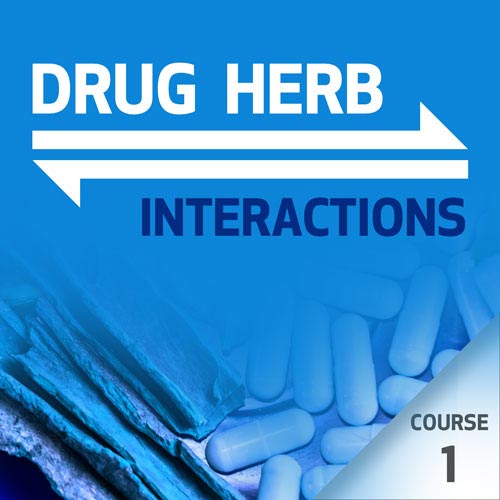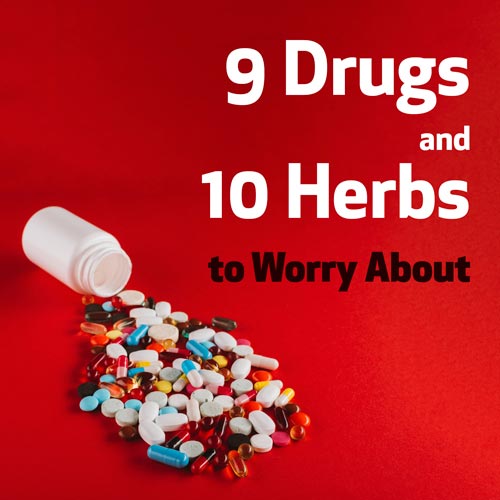Four Worrisome Chinese Herbs
By doing research on applying evidence-based medical levels to drug-herb interactions, I have found there aren’t very many interactions that are above the lowest level of evidence. In fact out of approximately 1000 drug-herb interactions, I only found 56 that were above “D” level (the lowest level) evidence. A little over a third of these involved Ma Huang (herba ephedra). Only two were “A” level, 18 were “B” level, and the rest were “C” level. Obviously, these numbers are not static and there is always new research, but these at least give us a good feel for what may be an important drug-herb interaction.
As may be inferred from the previous paragraph, there are many levels of evidence according to the Oxford Centre for Evidence-based Medicine (Phillips, et al., 2001). First each individual research paper is given a level of from 1 to 5. Then as an aggregate, based on these individual papers, an overall evidence level is given to the interaction from a grade of “A,” the highest level to “D,” the lowest level. The other issue is that just because an interaction exists, does not mean it is particularly bad. Some interactions enhance the effects of the constituents.
This article will look at four herbs that may cause interactions according to these evidence levels. This does not mean these are the only drug-herb interactions or even the worst interactions. It simply means these are the interactions with the most evidence. There are many potential interactions that have not been investigated and may or may not be more serious than what appears here.
1. Ma Huang (Ephedra)
Ma Huang has been shown in numerous studies to cause interactions and harmful effects. This led to this herb being banned by the Food and Drug Administration in any prepared form. While this was probably an over reaction to political pressure, there are some well established dangers in the literature. Ephedrine, a chief component of ma huang, increases the incidence of side effects, such as agitation, tremors, insomnia, blood pressure, heart rate, and in higher doses, plasma glucose, insulin, and C-peptide when combined with caffeine (Astrup, et al., 1991, level 2c evidence). Another study confirmed these effects but noted the transient nature of the side effects (Astrup & Toubro 1993, level 2c evidence).
A well constructed, randomly controlled trial showed that these negative effects were transient and equaled placebo levels after eight weeks (Astrup, Breum, Toubro, Hein, Quaade, 1992, level 1b evidence). So while these interactions are fairly well established, they seem to be for only for a short while. Monoamine oxidase inhibitors (MAOIs) are primarily antidepressants but some are used in treating symptoms of Parkinson’s disease. They include isocarboxazid, phenelzine, rasagiline, selegiline and tranylcypromine. Based on the ephedrine content, ma huang may cause hypertension when combined with MAOIs according to an expert opinion (Blumenthal, 1998, level 5 evidence).
One case report described a patient who stopped a MAOI, phenelzine, and ingested a combination pill of ephedrine, caffeine, and theophylline 24 hours later. She developed encephalopathy, a problem with the brain, neuromuscular irritability, tachycardia, a rapid heart rate, hypotension, rhabdomyolysis (a life threatening condition of muscle breakdown), and hyperthermia, a raised body temperature(Dawson, Earnshaw, Graham, 1995, level 4 evidence). Other possible effects include arrhythmias, an irregular heart beat, chest pain, hyperpyrexia (fever), and death (Gruenwald, Brendler, & Jaenicke, 2004, p. 535). One human study showed an increase in cardiovascular symptoms (Dingemanse, 1993, level 2c evidence).
Ma huang should be avoided for at least 2 weeks after stopping MAOIs (Brinker, 2001, p. 89). Because of ephedra’s potential for raising blood pressure, it, theoretically, should not be combined with agents that lower blood pressure (Mills & Bone, 2000).Ephedrine and pseudoephedrine toxicity may result from combining this herb with antacids (Brater, et. al., 1980).
2. Dang Gui (Angelica Sinensis)
It has been suggested that gan cao may have phytoestrogen content (Miller, 1998, level 5 evidence), however, the jury is still out on whether dang gui has estrogenic activity. One rat study (Circosta, De Pasquale, Palumbo, Samperi, Occhiuto, 2006, level 5 evidence) showed significant estrogenic changes. While in vitro(in humans)research showed little or no estrogen activity (Zava, Dollbaum, Blen, 1998, level 5 evidence). Finally, a double blinded randomly controlled trial showed no estrogen-like effects in postmenopausal women(Hirata, Small, Swiersz, Ettinger, Zell, 1997, level 1b evidence). While there is some controversy, the preponderance of evidence suggests that there is no estrogen-like activity, at least in post menopausal women. The evidence is still out on whether it may have these effects in other patients. Dang Gui has been shown in a small human study to potentiate warfarin and caution should be used in combining these two (Page& Lawrence, 1999).
3. Gan Cao (Licorice)
Gan Cao and oral contraceptive pills may increase blood pressure and fluidretention as shown in two case studies (de Klerk, Nieuwenhuis, Beutler, 1997, level 4 evidence), and an uncontrolled human study (Bernardi, D'Intino, Trevisani, Cantelli-Forti, Raggi, Turchetto, et al., 1994, level 2c evidence). Gan cao has quite a reputation in the medical literature for increasing blood pressure. However, this is based on its western herbal use as a single herb, and these effects may be mitigated by Chinese medicine’s use of formulas.Because of this tendency, gan cao should not be combined with drugs that reduce blood pressure (Gruenwald, Brendler, & Jaenicke, 2004, p. 514).It may also cause potassium loss when combined with diuretics.
4. Guan Ye Lian Qiao (St. John’s wort)
Guan Ye Lian Qiao affects a liver enzyme, cytochrome P450, which has led to being implicated in numerous drug herb interactions. It was found to decrease the effectiveness of indinavir in a small human study (Piscitelli, Burstein, Chaitt, Alfaro, Falloon, 2000, level 2c evidence). Indinavir is an antiretroviral agent used in treating the human immunovirus (HIV) and acquired immune deficiency syndrome (AIDS). Any reduction in its effectiveness could allow advancement of the disease and can be life threatening. B-level evidence showed a significant interference between Guan Ye Lian Qiao and digoxin (Johne, Brockmöller, Bauer, Maurer, Langheinrich, Roots, 1999). Guan Ye Lian Qiao is also considered to act like selective serotonin reuptake inhibitors, anti-depressants, and should not be combined with any type of anti-depressants.
While these are not the only herbs that should be carefully administered with drugs, they are among the most researched and accepted. Of course, combining drugs with these herbs can be dangerous, only a very few case studies have shown them to be. In other words, be cautious, but not paranoid. Use a step-by-step approach to combing drugs with these herbs and there is little to fear. But that is another article...
Other Courses By This Teacher
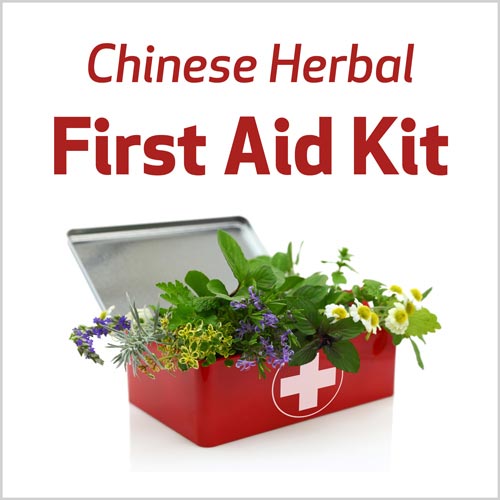

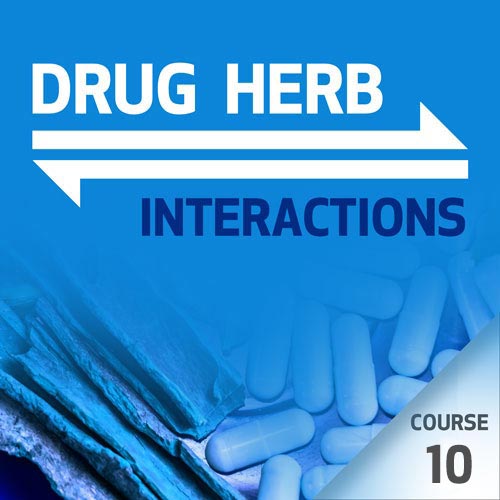

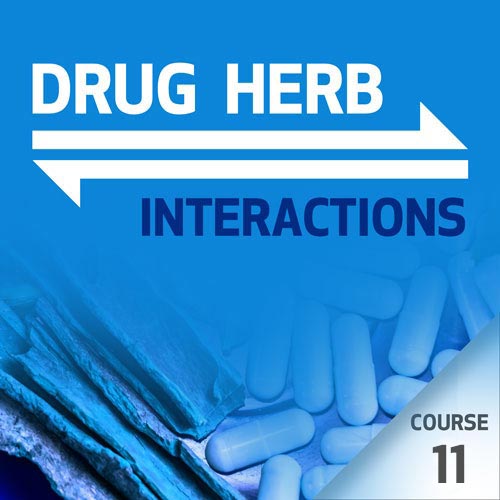

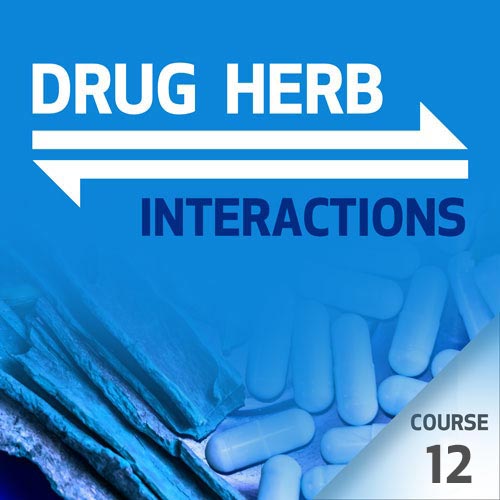

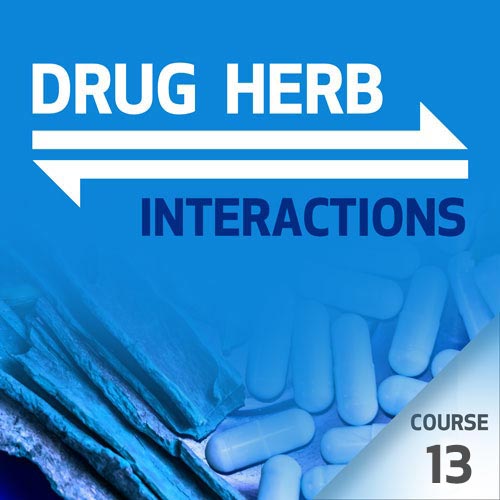

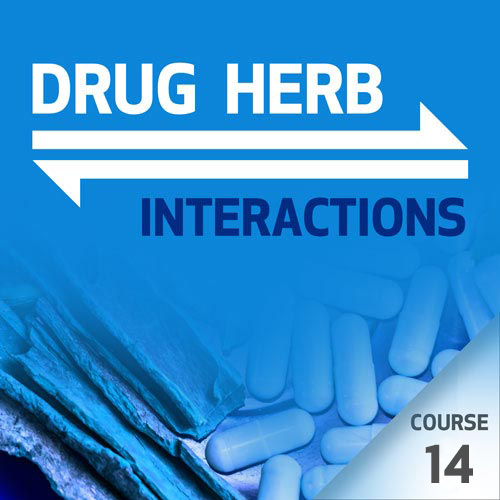

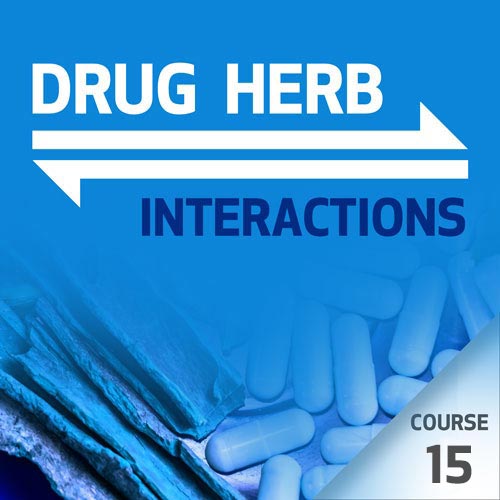

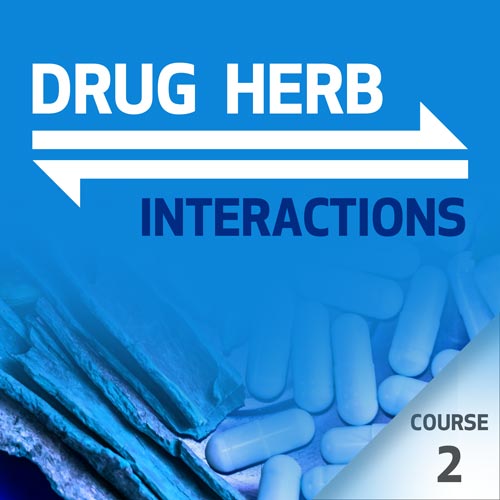

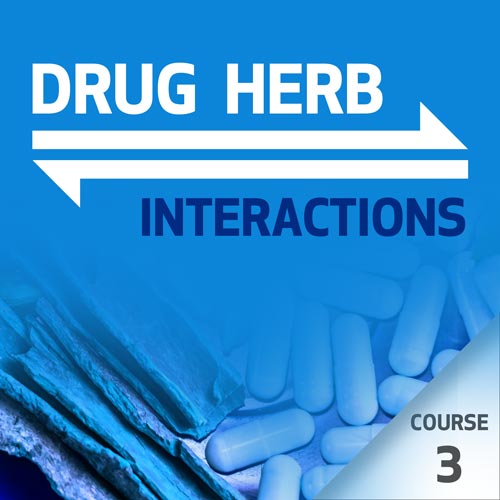

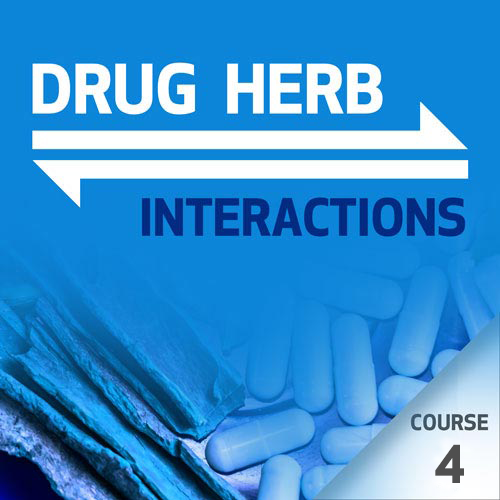

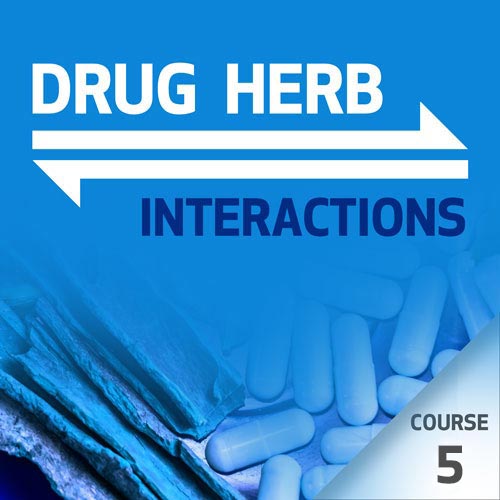

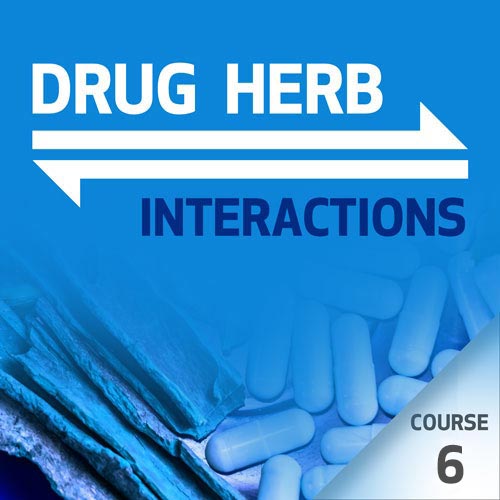

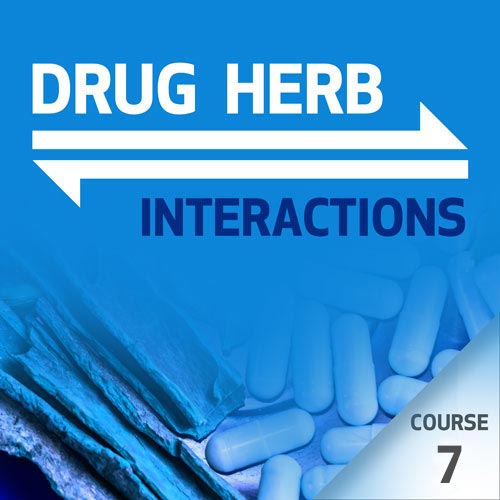

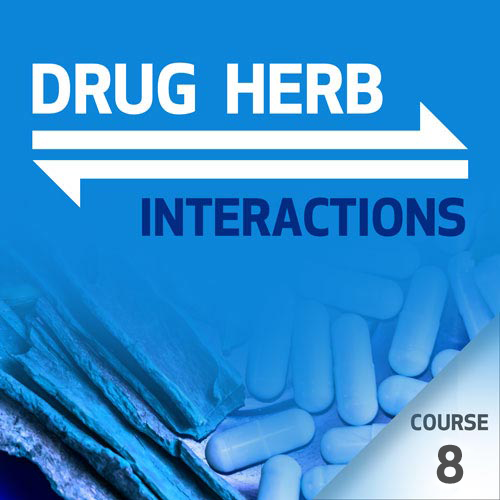

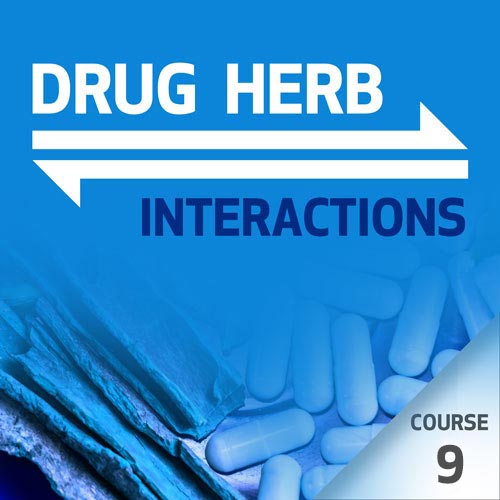

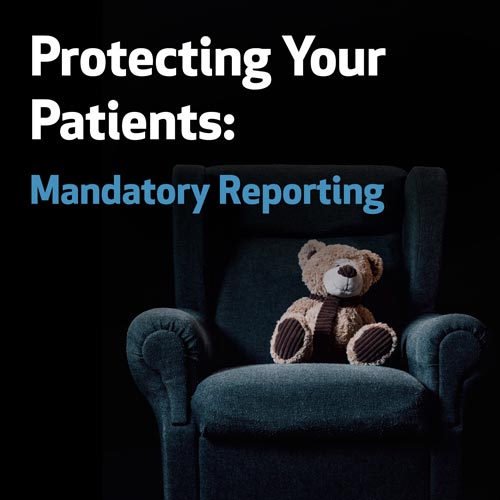

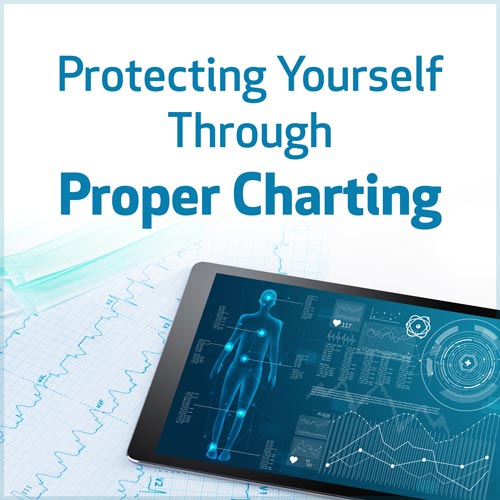

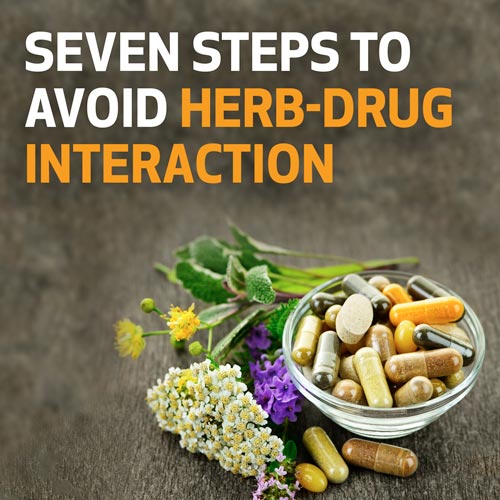

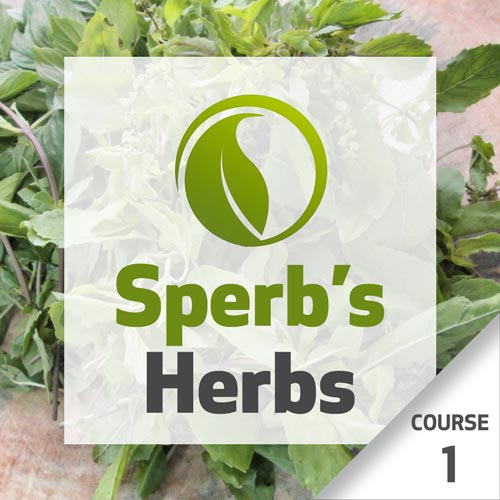

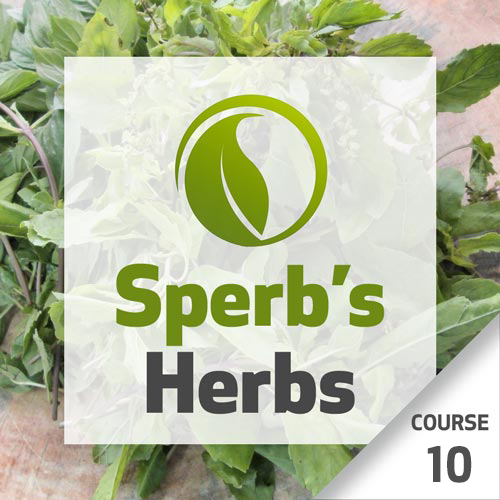

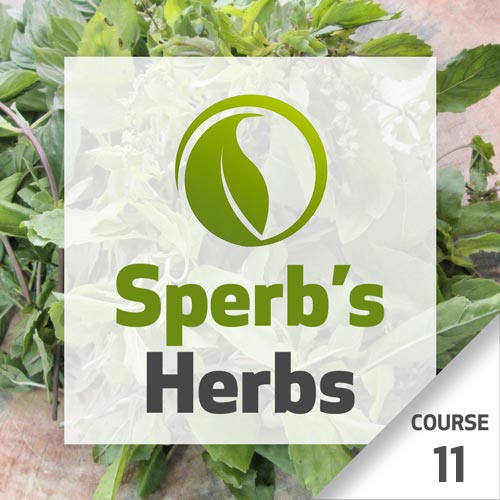

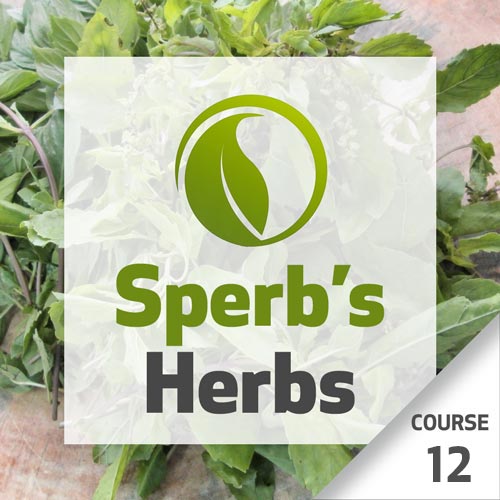

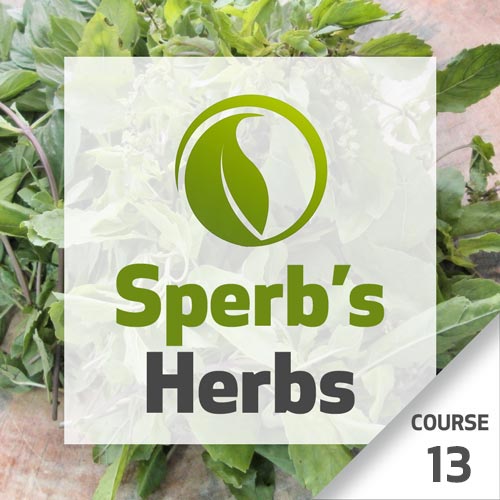

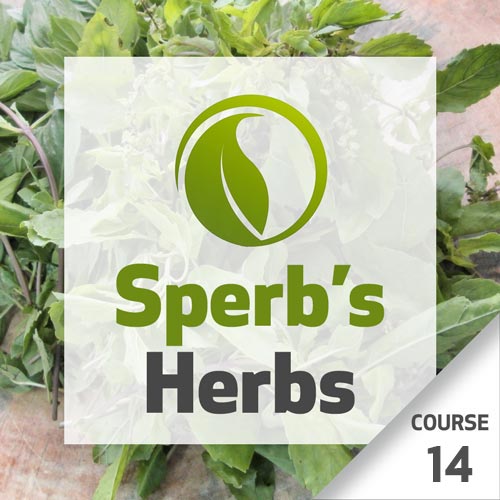

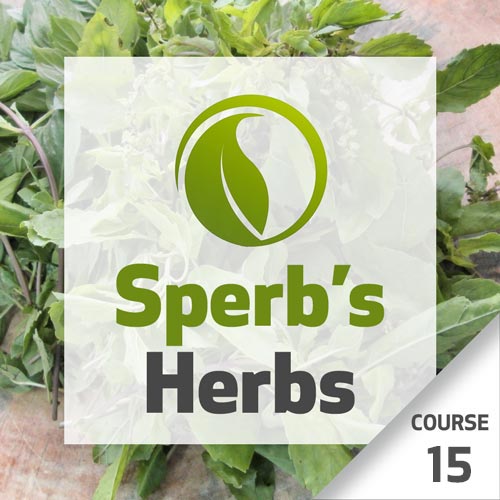

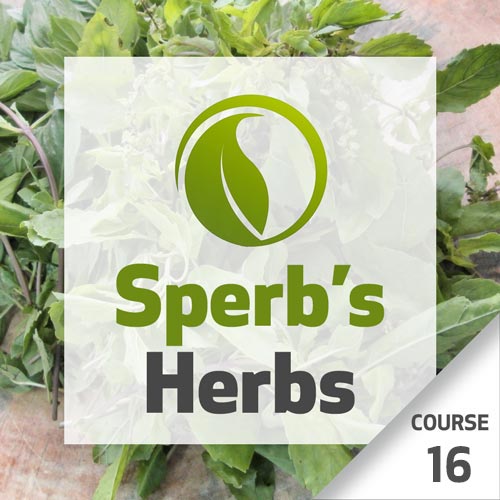

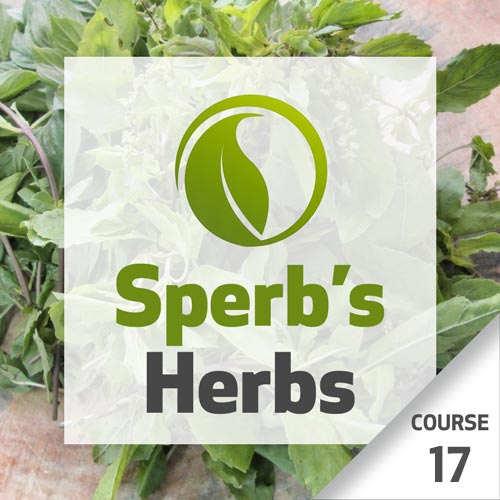

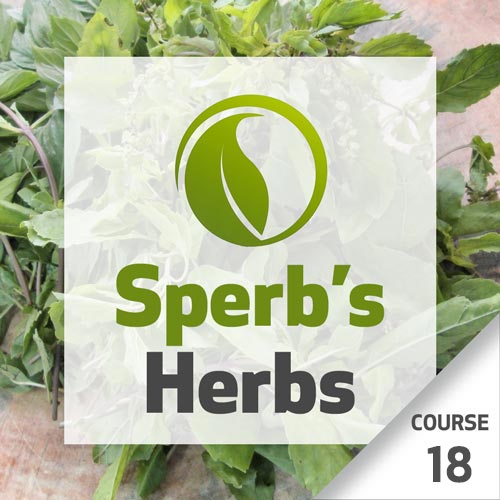

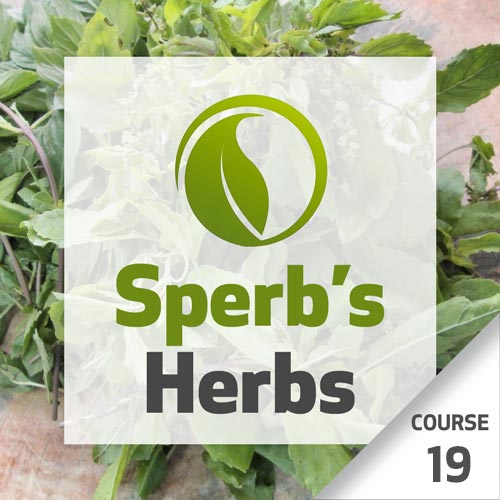

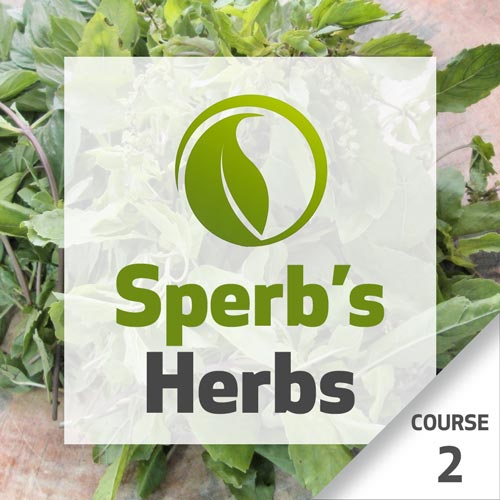

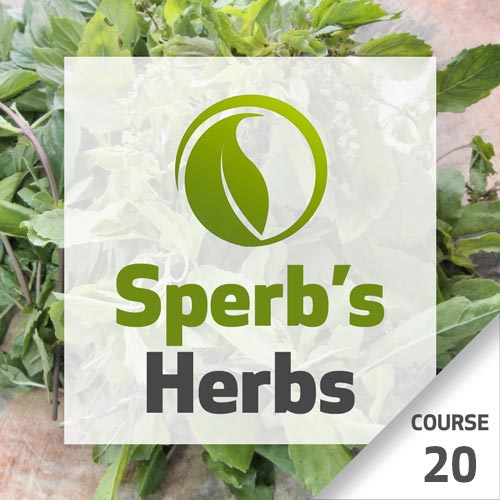

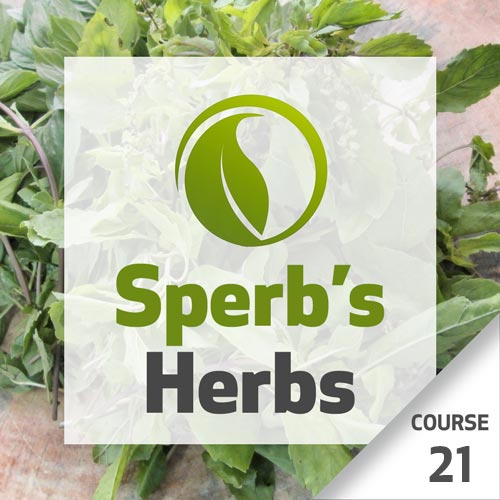

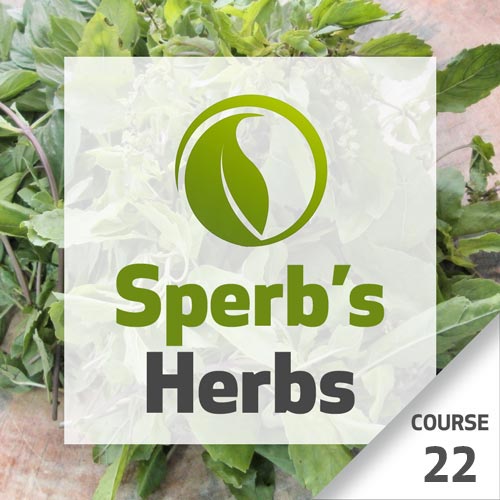

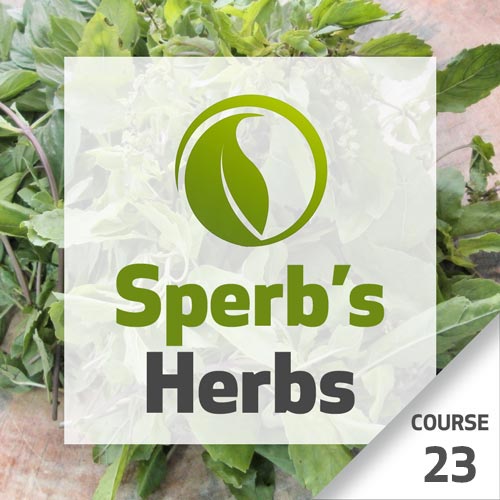

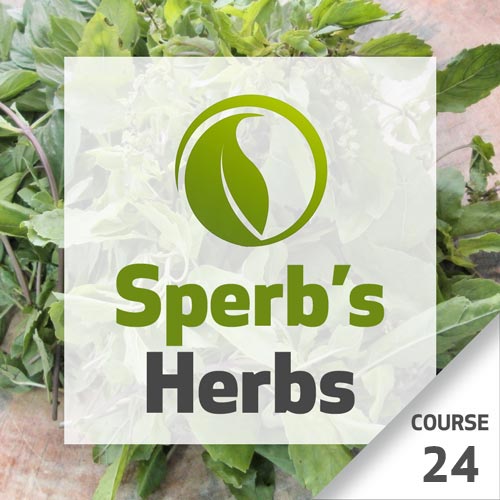

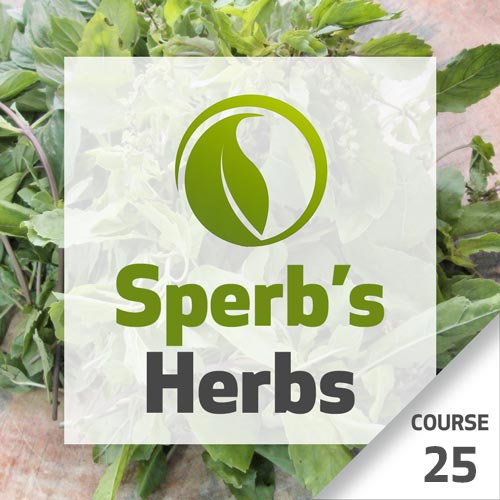

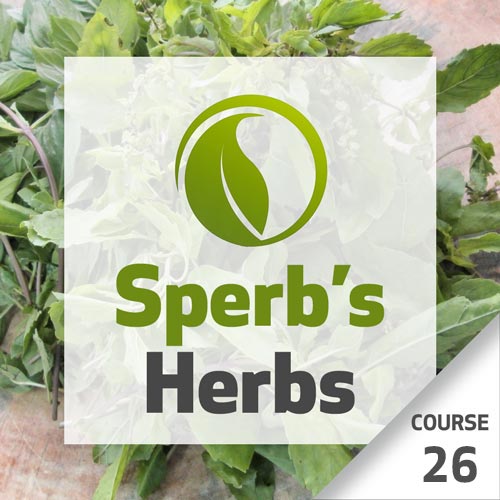

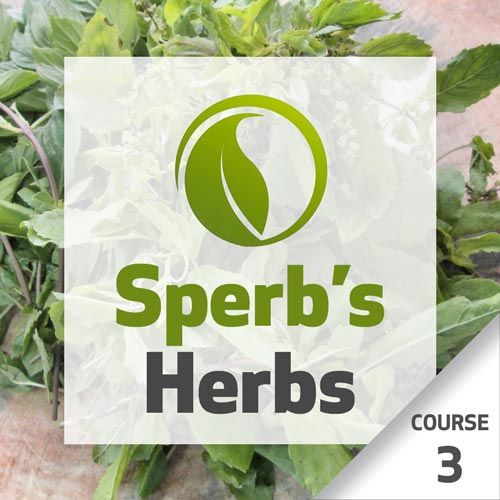

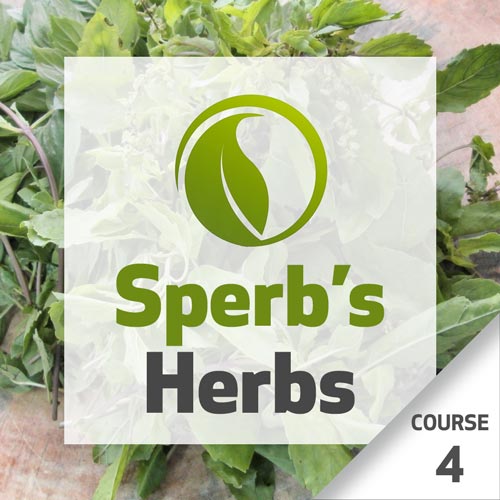

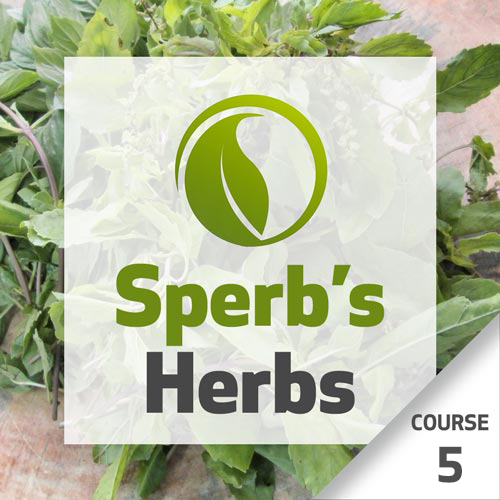

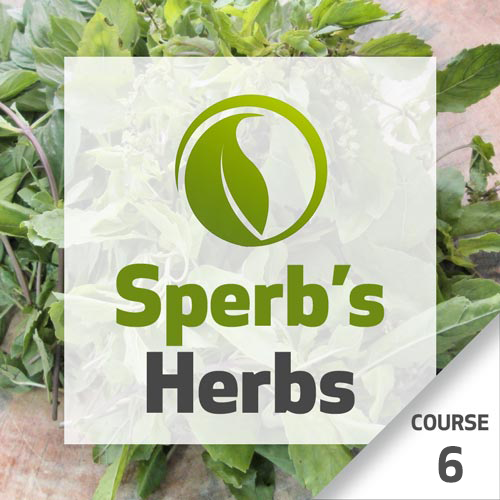

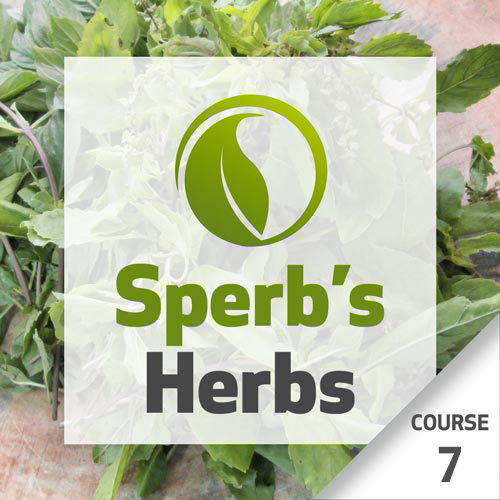

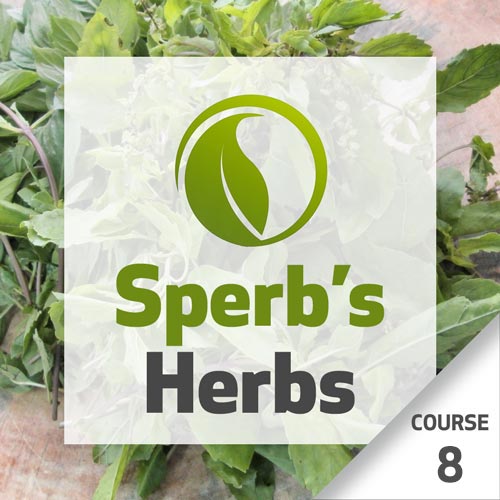

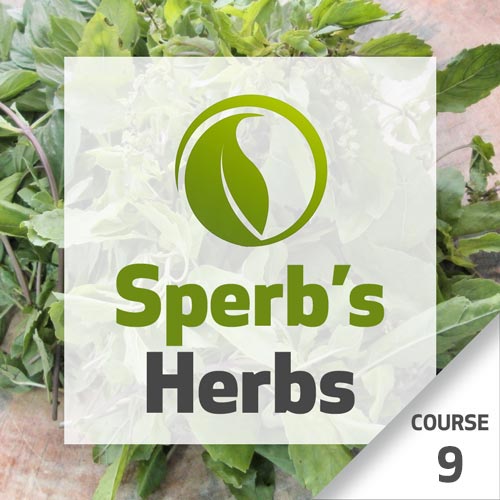

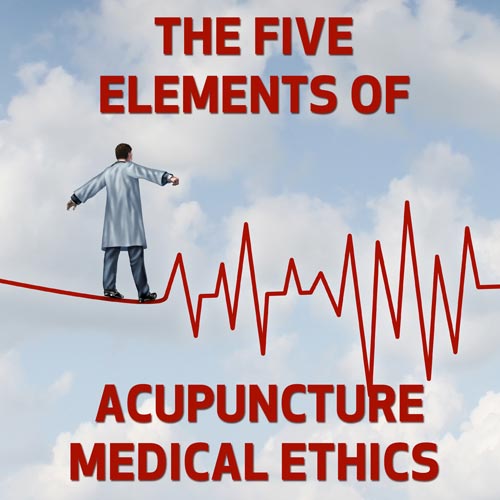

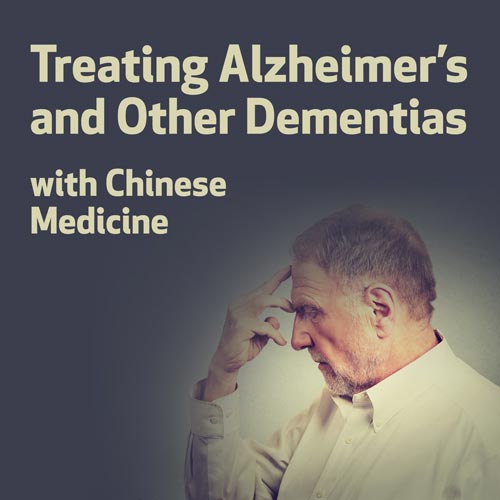

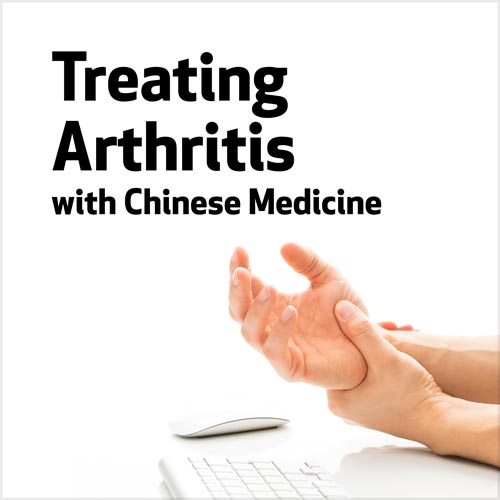

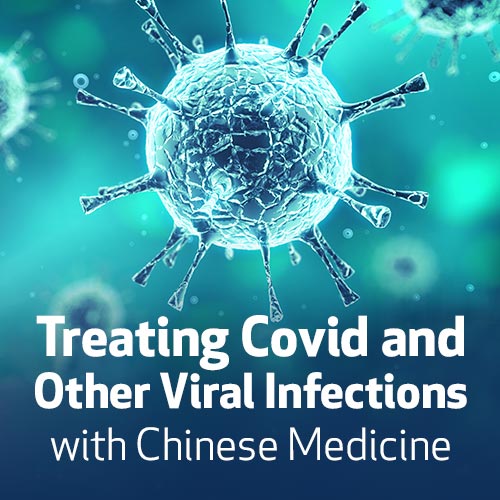

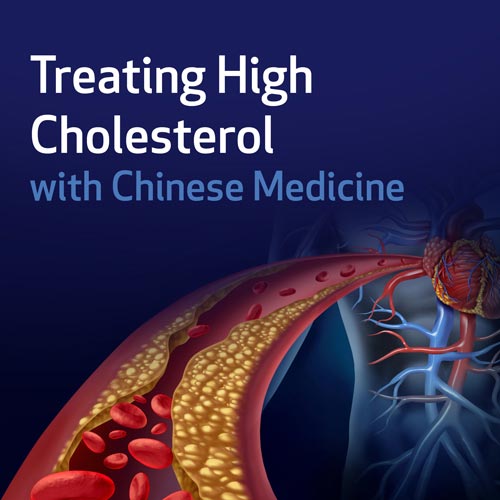

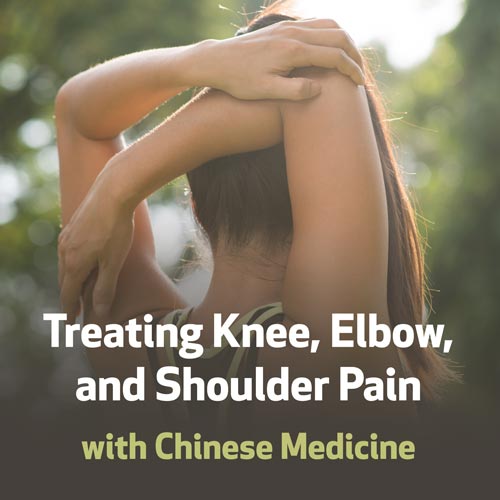



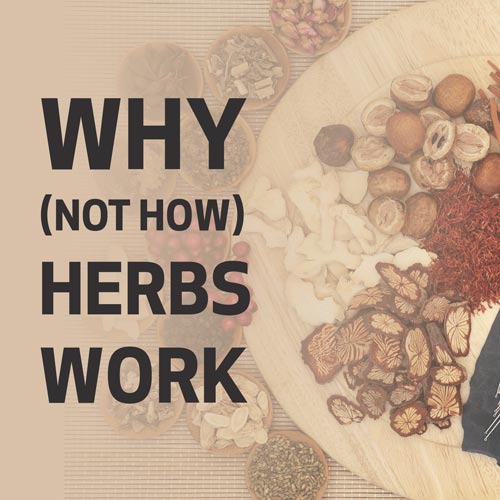

Overview
We should be empowering our patients to help themselves. What better way to do that than give them info for having Chinese herbal formulas in their medicine cabinet to help with minor medical conditions. In this course, we will look at relatively easy to find prepared herbal medicines everyone should have in their medical cabinet. We will discuss the conditions they treat, how to use them, and any cautions. As a bonus, each participant will receive a free copy of the upcoming ebook (when available): "Dragons in the Medicine Cabinet, Chinese Herbal Medicines Everyone Should Have at Home."
Conditions covered include, but are not limited to, colds, bleeding, burns, digestive complaints, headaches, and sinusitis.
Learning Objectives
- Comprehend the cautions and contraindications of the discussed medicinals.
- Communicate with their patients about commonly used Chinese herbal preparations.
- Understand Chinese herbal preparations used in first aid and common medical conditions.
Your Teacher

Greg Sperber
Dr. Greg Sperber is an author and also holds a Masters and Doctor of Acupuncture and Oriental Medicine from Pacific College of Oriental Medicine. He is a professor at PCOM and speaks internationally on TCM business and drug-herb interactions.
Categories
Tags
Drug-Herb Interactions - Course 10
Gastrointestinal Drugs and Chinese Medicine
with Greg Sperber
See In StoreOverview
While there are serious diseases that affect the gastrointestinal tract, such as irritable bowel syndrome and inflammatory bowel disease, there are also common conditions that most will experience at some point and need some help.
These include constipation, excessive gas, diarrhea, and nausea and vomiting (both idiopathic and anticancer drug induced). This seminar will examine drugs to help treat each of these conditions including drug functions, mechanisms of actions, adverse drug reactions, red flags, and herb-drug and acupuncture-drug interactions for each type of drug.
Learning Objectives
- Identify the most common gastrointestinal drugs with potential for drug-herb interactions.
- Understand how gastrointestinal drugs and herbs interact.
- Explore how major gastrointestinal drugs act on the body.
- Protect oneself from potential medico-legal issues arising from interactions.
Your Teacher

Greg Sperber
Dr. Greg Sperber is an author and also holds a Masters and Doctor of Acupuncture and Oriental Medicine from Pacific College of Oriental Medicine. He is a professor at PCOM and speaks internationally on TCM business and drug-herb interactions.
Categories
Tags
Drug-Herb Interactions - Course 11
Antibacterial Drugs and Chinese Medicine
with Greg Sperber
See In StoreOverview
Antibacterial drugs are a major contributor to the massive increase in lifespan during the twentieth century. They have also been incredibly controversial. Paradoxically being some of the safest drugs in the entire pharmacopeia and causing life-threatening allergies, secondary infections, and resistance.
This is a fascinating category of drugs that are widely used by our patients with lots of implications and interactions with Chinese medicine. This seminar examines this class of drugs and, by necessity, discusses various types of bacteria. Within each class of antibacterials, we will look at other functions, red flag issues, mechanisms of action, adverse effects, and any potential interactions.
Chinese medical practitioners often have very strong feelings about antibiotics, this course will challenge and support a lot of commonly held beliefs and help us be better practitioners for our patients.
Learning Objectives
- Understand the basics of bacterial microbiology.
- Understand how antibacterial drugs and herbs interact.
- Identify the most common antibacterial drugs with potential for drug-herb interactions.
- Protect oneself from potential medico-legal issues arising from interactions.
- Explore how major antibacterial drugs act on the body.
Your Teacher

Greg Sperber
Dr. Greg Sperber is an author and also holds a Masters and Doctor of Acupuncture and Oriental Medicine from Pacific College of Oriental Medicine. He is a professor at PCOM and speaks internationally on TCM business and drug-herb interactions.
Categories
Tags
Drug-Herb Interactions - Course 12
Other Antimicrobial Drugs and Chinese Medicine
with Greg Sperber
See In StoreOverview
This seminar will spend quite a bit of time discussing antivirals used to treat human immunodeficiency virus (HIV), coronavirus, herpes, respiratory syncytial virus (RSV), and some hepatitises. Additionally, antifungal, antiprotozoal, and anthelminthic (anti-worm) agents will be discussed. These discussions will, by necessity, also include life cycles of many of these of these pathogens. Within each type of agent, we will examine functions, red flag issues, mechanisms of action, adverse effects, and any potential interactions. This will be a fascinating exploration of some frequently treated conditions by Chinese medical practitioners as well as some that are quite uncommon. They may be uncommon, but they are still very interesting.
Learning Objectives
- Understand the basics of microbial biology.
- Explore how major antimicrobial drugs act on the body.
- Understand how antimicrobial drugs and herbs interact.
- Protect oneself from potential medico-legal issues arising from interactions.
- Identify the most common antimicrobial drugs with potential for drug-herb interactions.
Your Teacher

Greg Sperber
Dr. Greg Sperber is an author and also holds a Masters and Doctor of Acupuncture and Oriental Medicine from Pacific College of Oriental Medicine. He is a professor at PCOM and speaks internationally on TCM business and drug-herb interactions.
Categories
Tags
Drug-Herb Interactions - Course 13
Anti-Cancer Drugs and Chinese Medicine
with Greg Sperber
See In StoreOverview
Anti-Cancer Drugs as a group of drugs are more commonly used than we would like. But cancer is not a singular disease and is actually thousands of very different diseases with only one thing in common: unregulated and malignant cell growth. Just as there are so many cancers, there are a lot of different agents to combat them. This seminar will look at classes of anti-cancer drugs: alkylating agents, antimetabolites, antibiotics, microtubule inhibitors, steroid hormones and their antagonists, monoclonal antibodies, tyrosine kinase inhibitors, and other anti-cancer agents. We will look at what they do and how they do it, as well as the dangers Chinese medical practitioners need to be aware of when combining with herbs and acupuncture. This is a must review seminar for anyone who has cancer patients in their practice.
Learning Objectives
- Protect oneself from potential medico-legal issues arising from interactions.
- Understand how anti-cancer drugs and herbs interact.
- Explore how major anti-cancer drugs act on the body.
- Identify the most common anti-cancer drugs with potential for drug-herb interactions.
Your Teacher

Greg Sperber
Dr. Greg Sperber is an author and also holds a Masters and Doctor of Acupuncture and Oriental Medicine from Pacific College of Oriental Medicine. He is a professor at PCOM and speaks internationally on TCM business and drug-herb interactions.
Categories
Tags
Drug-Herb Interactions - Course 14
Anti-Inflammatory Drugs and Chinese Medicine
with Greg Sperber
See In StoreOverview
Anti-inflammatory drugs are commonly prescribed to our patients. And there is probably no drug more widely used among our patient population, when you consider over-the-counter use. This seminar explores this class of drugs including non-steroidal anti-inflammatory drugs (NSAIDs), other analgesics, disease-modifying antirheumatic drugs (DMARDs), migraine drugs, and drugs to treat gout and ulcerative colitis. Join us as we look at the uses, mechanisms of action, cautions, and potential interactions of these agents.
Learning Objectives
- Understand how Anti-Inflammatory drugs and herbs interact.
- Identify the most common Anti-Inflammatory drugs with potential for drug-herb interactions.
- Protect oneself from potential medico-legal issues arising from interactions.
- Explore how major Anti-Inflammatory drugs act on the body.
Your Teacher

Greg Sperber
Dr. Greg Sperber is an author and also holds a Masters and Doctor of Acupuncture and Oriental Medicine from Pacific College of Oriental Medicine. He is a professor at PCOM and speaks internationally on TCM business and drug-herb interactions.
Categories
Tags
Drug-Herb Interactions - Course 15
Miscellaneous Drugs and Chinese Medicine
with Greg Sperber
See In StoreOverview
An eclectic group of drugs await us as we explore miscellaneous drugs and how they interact with Chinese medicine. We will look at erectile dysfunction, osteoporosis, immunosuppressive, obesity, and acne drugs, skeletal muscle relaxants, and aids for smoking cessation. Join us as we look at the uses, mechanisms of action, cautions, and potential interactions of these agents.
Learning Objectives
- Understand how miscellaneous drugs and herbs interact
- Explore how major miscellaneous drugs act on the body
- Identify the most common miscellaneous drugs with potential for drug-herb interactions
- Protect oneself from potential medico-legal issues arising from interactions
Your Teacher

Greg Sperber
Dr. Greg Sperber is an author and also holds a Masters and Doctor of Acupuncture and Oriental Medicine from Pacific College of Oriental Medicine. He is a professor at PCOM and speaks internationally on TCM business and drug-herb interactions.
Categories
Tags
Drug-Herb Interactions - Course 2
Drug-Herb Interactions and the Matrix
with Greg Sperber
See In StoreOverview
We can predict potential drug-herb interactions. This course takes the basic pharmacology principles discussed in the Basics of Pharmacology course, including the ADME scheme and the therapeutic index, and applies them to understanding and predicting drug-herb interactions. In addition, recent areas of research related to interactions, such as p-glycoprotein and other transporters, will be discussed. The emphasis is on both the theoretical prediction and real world application of strategies for preventing and dealing with interactions. This includes a discussion about creating a Drug-Herb Interaction Matrix for determining an individual patient's risk. The template for the matrix will be provided as part of the course.
Learning Objectives
- Identify the risks involved with combining drugs and herbs
- Create a Drug-Herb Interaction Matrix for assessing individual patient risk and as a tool for communication
- Understand how the basics of pharmacokinetics, including the ADME scheme, and pharmacodynamics can be used to predict drug-herb interactions
Your Teacher

Greg Sperber
Dr. Greg Sperber is an author and also holds a Masters and Doctor of Acupuncture and Oriental Medicine from Pacific College of Oriental Medicine. He is a professor at PCOM and speaks internationally on TCM business and drug-herb interactions.
Categories
Tags
Drug-Herb Interactions - Course 3
Autonomic Nervous System Drugs and Chinese Medicine
with Greg Sperber
See In StoreOverview
Autonomic Nervous System (ANS) drugs as a class are varied in their effects and often used by patients of acupuncturists and Chinese medical practitioners. They also have serious adverse effects, drug-herb interactions, as well as interference with Chinese diagnostics. This seminar examines major ANS drugs and the dangers Chinese medical practitioners need to be aware of when combining with herbs and acupuncture. We will look at various types of biomedical treatments for Alzheimers and other dementias, Parkinson's disease, irritable bowel syndrome, asthma, hypo- and hypertension, benign prostatic hyperplasia, and other conditions. Herb-drug and acupuncture-drug interactions will be explored for each type of drug.
Learning Objectives
- Identify the most common autonomic nervous system drugs with potential for drug-herb interactions
- Explore how major autonomic nervous system drugs act on the body
- Understand how autonomic nervous system drugs and herbs interact
Your Teacher

Greg Sperber
Dr. Greg Sperber is an author and also holds a Masters and Doctor of Acupuncture and Oriental Medicine from Pacific College of Oriental Medicine. He is a professor at PCOM and speaks internationally on TCM business and drug-herb interactions.
Categories
Tags
Drug-Herb Interactions - Course 4
Psychiatric Drugs and Chinese Medicine
with Greg Sperber
See In StoreOverview
Psychiatric drugs as a class are very commonly used in the general population and by patients of acupuncturists and Chinese medical practitioners. They also have serious adverse effects, potential addiction, and drug-herb interactions. This seminar examines major psychiatric drugs and the dangers Chinese medical practitioners need to be aware of when combining with herbs and acupuncture. We will look at various types of biomedical treatments for depression, anxiety, schizophrenia, and mania. Herb-drug and acupuncture-drug interactions will be explored for each type of drug.
Learning Objectives
- Identify the most common psychiatric drugs with potential for drug-herb interactions.
- Protect oneself from potential medico-legal issues arising from interactions.
- Explore how major psychiatric drugs act on the body.
- Understand how psychiatric drugs and herbs interact.
Your Teacher

Greg Sperber
Dr. Greg Sperber is an author and also holds a Masters and Doctor of Acupuncture and Oriental Medicine from Pacific College of Oriental Medicine. He is a professor at PCOM and speaks internationally on TCM business and drug-herb interactions.
Categories
Tags
Drug-Herb Interactions - Course 5
Central Nervous System Drugs and Chinese Medicine
with Greg Sperber
See In StoreOverview
Central Nervous System (CNS) drugs as a class have profound effects and are very commonly used by patients of acupuncturists and Chinese medical practitioners. They also have serious adverse effects, drug-herb interactions, as well as potential interference with Chinese diagnostics. This seminar examines major CNS drugs and the dangers Chinese medical practitioners need to be aware of when combining with herbs and acupuncture. We will look at various types of biomedical treatments for Parkinson's disease, other neurodegenerative conditions, insomnia, epilepsy, as well as CNS stimulants and opioid drugs. Herb-drug and acupuncture-drug interactions will be explored for each type of drug.
Learning Objectives
- Identify the most common central nervous system drugs with potential for drug-herb interactions.
- Explore how major central nervous system drugs act on the body.
- Understand how central nervous system drugs and herbs interact.
Your Teacher

Greg Sperber
Dr. Greg Sperber is an author and also holds a Masters and Doctor of Acupuncture and Oriental Medicine from Pacific College of Oriental Medicine. He is a professor at PCOM and speaks internationally on TCM business and drug-herb interactions.
Categories
Tags
Overview
Cardiac drugs as a class are the most commonly prescribed drugs in the US. Lipitor, a statin drug to treat cholesterol is the most commonly prescribed drug. Several hypertension drugs are also in the top ten prescribed. This seminar examines major cardiac drugs and the dangers Chinese medical practitioners need to be aware of when combining with herbs and acupuncture.
We will look at various types of biomedical treatments for hypertension, arrhythmia, high cholesterol, and coagulative states. Herb-drug acupuncture-drug interactions will be explored for each type of drug. Each of the following drug classes will be explored: antihypertensive agents, anti-hyperlipidemic agents, anti-arrhythmics, and anticoagulants.
Learning Objectives
- Explore how major cardiac drugs act on the body.
- Understand how cardiac drugs and herbs interact.
- Protect oneself from potential medico-legal issues arising from interactions.
- Identify the most common cardiac drugs with potential for drug-herb interactions.
Your Teacher

Greg Sperber
Dr. Greg Sperber is an author and also holds a Masters and Doctor of Acupuncture and Oriental Medicine from Pacific College of Oriental Medicine. He is a professor at PCOM and speaks internationally on TCM business and drug-herb interactions.
Categories
Tags
Drug-Herb Interactions - Course 7
Sex Hormones and Reproductive Aids and Chinese Medicine
with Greg Sperber
See In StoreOverview
Chinese medicine is often used to help menstrual, menopausal, contraceptive, and reproductive medical conditions. In addition, several of the drugs used as sex hormones or anti-hormones are used to treat various cancers and other conditions. This seminar examines sex hormones and reproductive aids and the dangers Chinese medical practitioners need to be aware of when combining with herbs and acupuncture. We will look at various types of drugs including androgens, anti-androgens, estrogens, progestins, anti-progestins, as well as selective estrogen receptor modulators and various reproductive aids. Herb-drug and acupuncture-drug interactions will be explored for each type of drug. If you treat various hormonal cancers, severe hormonal conditions, and/or reproductive medicine, this is a must attend seminar.
Learning Objectives
- Identify the most common Sex Hormones with potential for drug-herb interactions.
- Protect oneself from potential medico-legal issues arising from interactions.
- Understand how Sex Hormones and herbs interact.
- Explore how major Sex Hormones act on the body.
Your Teacher

Greg Sperber
Dr. Greg Sperber is an author and also holds a Masters and Doctor of Acupuncture and Oriental Medicine from Pacific College of Oriental Medicine. He is a professor at PCOM and speaks internationally on TCM business and drug-herb interactions.
Categories
Tags
Drug-Herb Interactions - Course 8
Endocrine Drugs and Chinese Medicine
with Greg Sperber
See In StoreOverview
This seminar explores drugs used to treat several common conditions in the population and in acupuncturist offices. These include thyroid conditions, diabetes (both type I and II), as well as auto-immune and inflammatory conditions. In addition to drugs to treat these conditions, we will also be exploring drugs used to treat the pituitary and inhibitors of adrenocorticoids. After a review of the hypothalamus and pituitary and their hormones, each of the endocrine organs and their hormones will be examined for practical implications in modern medicine. Herb-drug and acupuncture-drug interactions will be explored for each type of drug. If you treat any of these conditions, and/or tumors and cancers affecting the thyroid, pituitary, or adrenals, this is a must attend seminar.
Learning Objectives
- Explore how major endocrine drugs act on the body.
- Understand how endocrine drugs and herbs interact.
- Protect oneself from potential medico-legal issues arising from interactions.
- Identify the most common endocrine drugs with potential for drug-herb interactions.
Your Teacher

Greg Sperber
Dr. Greg Sperber is an author and also holds a Masters and Doctor of Acupuncture and Oriental Medicine from Pacific College of Oriental Medicine. He is a professor at PCOM and speaks internationally on TCM business and drug-herb interactions.
Categories
Tags
Drug-Herb Interactions - Course 9
Respiratory Drugs and Chinese Medicine
with Greg Sperber
See In StoreOverview
Asthma is one of the most common conditions in the population. Chronic Obstructive Pulmonary Disease (COPD) is the third leading cause of death in the United States. Add in allergies and the common cold and flu, and it is practically impossible to avoid patients who are or will be on drugs to treat these conditions. This seminar will examine drugs to treat respiratory diseases including those listed here as well as antitussives and expectorants. We will be exploring these diseases in addition to the drug functions, mechanisms of actions, adverse drug reactions, red flags, and herb-drug and acupuncture-drug interactions for each type of drug. Join us for this informative and relevant seminar.
Learning Objectives
- Identify the most common respiratory drugs with potential for drug-herb interactions.
- Protect oneself from potential medico-legal issues arising from interactions.
- Understand how respiratory drugs and herbs interact.
- Explore how major respiratory drugs act on the body.
Your Teacher

Greg Sperber
Dr. Greg Sperber is an author and also holds a Masters and Doctor of Acupuncture and Oriental Medicine from Pacific College of Oriental Medicine. He is a professor at PCOM and speaks internationally on TCM business and drug-herb interactions.
Categories
Tags
Overview
There is an ethical and legal responsibility for healthcare practitioners to report certain things. While each state may mandate different things, especially for acupuncturists, there are several areas covered by mandatory reporting laws including diseases, child and elder abuse, and suicide and harm to others. This course looks at the roles and responsibilities of acupuncturists and how to proceed with a report. It will also answer questions such as: Are there any risks to reporting? Can my patients sue me? What if I am wrong? If you are in practice and see any children, elderly, or potentially mentally ill, this course is incredibly important, not only to protect yourself, but to protect your patients.
Learning Objectives
- Understand the rationale and responsibilities of healthcare providers in regard to mandatory reporting
- Appraise the risk factors and necessity for mandatory reporting
- Classify the different types of mandatory reporting
Your Teacher

Greg Sperber
Dr. Greg Sperber is an author and also holds a Masters and Doctor of Acupuncture and Oriental Medicine from Pacific College of Oriental Medicine. He is a professor at PCOM and speaks internationally on TCM business and drug-herb interactions.
Categories
Tags
Overview
This course looks at how to do a proper chart and examines some of the common mistakes made when charting. Based on the instructors experience with medical charting and over 12 years of clinical supervising, seeing all the mistakes and studying what makes a great chart. In addition, this course will discuss medicolegal aspects of SOAP notes as well as the SOAPE note. This course is a must take for anyone who wishes to protect themselves legally as well give the best care to their patients.
Learning Objectives
- Employ the SOAP and SOAPE style of charting
- Avoid common errors in charting
- Identify medicolegal aspects of proper charting and the consequences of improper charting
Your Teacher

Greg Sperber
Dr. Greg Sperber is an author and also holds a Masters and Doctor of Acupuncture and Oriental Medicine from Pacific College of Oriental Medicine. He is a professor at PCOM and speaks internationally on TCM business and drug-herb interactions.
Categories
Tags
Overview
We may not be able to predict all drug-herb interactions, but we can determine potentials for interactions. This one-hour webinar examines how to approach these potential drug-herb interactions.
A discussion of protein binding, cytochrome P450, and the therapeutic index form the foundation of this understanding. You will leave with real skills to assess potential interactions.
This webinar is based on Dr. Sperber's book Integrative Pharmacology: Combining Modern Pharmacology and Chinese Medicine, written with Bob Flaws.
Learning Objectives
- To identify the most common pharmacological reasons drugs and herbs interact.
- Create protocols to avoid interactions.
- To understand the basics of how drugs and herbs interact.
Your Teacher

Greg Sperber
Dr. Greg Sperber is an author and also holds a Masters and Doctor of Acupuncture and Oriental Medicine from Pacific College of Oriental Medicine. He is a professor at PCOM and speaks internationally on TCM business and drug-herb interactions.
Categories
Tags
Sperb's Herbs - Course 1
Gou Qi Zi (Goji)
with Greg Sperber
Overview
This is an exciting episode of the Sperb's Herbs, Chinese Singles podcast. This episode covers the Chinese herb gou qi zi, commonly known as Goji. Each episode of the podcast will go into great depth about a single herb. Besides covering the basics of Chinese herbology including category, and functions, we will explore the history, quality, science, pharmacology, evidence, and any potential interactions of each herb. And then there is always something a little quirky about an episode. Whether that is a unique story or an interesting perspective, there will always be something different to learn about episode's herb.
Learning Objectives
- Understand and prevent any potential drug-herb interactions
- Converse about the current scientific evidence about the uses, dangers, and effectiveness of Gou Qi Zi (Goji)
- Comprehend basic Chinese and bio- medical information about Gou Qi Zi (Goji)
- Understand the history of Gou Qi Zi (Goji), especially in the context of the Chinese classics
Your Teacher

Greg Sperber
Dr. Greg Sperber is an author and also holds a Masters and Doctor of Acupuncture and Oriental Medicine from Pacific College of Oriental Medicine. He is a professor at PCOM and speaks internationally on TCM business and drug-herb interactions.
Category
Tags
Sperb's Herbs - Course 10
Da Suan (Garlic)
with Greg Sperber
Overview
Garlic is a wonderful culinary herb. But it is also a useful Chinese herb. This episode goes into the medicinal qualities of garlic from a scientific and Chinese point of view. Also we will, as something a little different, discuss black garlic both as a wonderfully similar yet different addition to our recipes, as well as an examination of its herbal properties. Does garlic live up to its hype? Or is it an herbal dud? At least, nothing can change its wonderful flavor!
Every other week an exciting new episode of the Sperb's Herbs podcast is recorded. Each episode covers another Chinese herb and will go into great depth about it. Besides covering the basics of Chinese herbology including category, and functions, we will explore the history, quality, science, pharmacology, evidence, and any potential interactions of each herb. And then there is always something a little quirky about an episode. Whether that is a unique story or an interesting perspective, there will always be something different to learn about episode's herb.
Learning Objectives
- Converse about the current scientific evidence about the uses, dangers, and effectiveness of Da Suan (Garlic).
- Understand and prevent any potential drug-herb interactions.
- Comprehend basic Chinese and bio- medical information about Da Suan (Garlic).
- Understand the history of Da Suan (Garlic), especially in the context of the Chinese classics.
Your Teacher

Greg Sperber
Dr. Greg Sperber is an author and also holds a Masters and Doctor of Acupuncture and Oriental Medicine from Pacific College of Oriental Medicine. He is a professor at PCOM and speaks internationally on TCM business and drug-herb interactions.
Categories
Tags
Sperb's Herbs - Course 11
Devil’s claw
with Greg Sperber
Overview
Devil’s claw is our first herb from Africa. It is supposed to help aches and pains, joints, and digestive complaints among many other uses. We will be looking at the history of this herb, what it is supposed to treat, and the science behind it. And for something a little different, we will be looking at sustainability of herbs in the world. I was actually quite surprised by this herb and it will probably change how I recommend herbs to many of my patients. Find out why…
Every other week an exciting new episode of the Sperb’s Herbs podcast is recorded. Each episode covers another Chinese or world herb or formula and will go into great depth about it. Besides covering the basics of Chinese herbology including category, and functions, we will explore the history, quality, science, pharmacology, evidence, and any potential interactions of each herb. And then there is always something a little quirky about an episode. Whether that is a unique story or an interesting perspective, there will always be something different to learn about each episode’s herb.
Learning Objectives
- Understand the history of Devil’s Claw, especially in the context of its tradition and its modern discovery.
- Understand and prevent any potential drug-herb interactions.
- Comprehend basic, traditional, and bio- medical information about Devil’s Claw.
- Converse about the current scientific evidence about the uses, dangers, and effectiveness of Devil’s Claw.
Your Teacher

Greg Sperber
Dr. Greg Sperber is an author and also holds a Masters and Doctor of Acupuncture and Oriental Medicine from Pacific College of Oriental Medicine. He is a professor at PCOM and speaks internationally on TCM business and drug-herb interactions.
Category
Tags
Sperb's Herbs - Course 12
Melaleuca Cajuputi
with Greg Sperber
Overview
Melaleuca Cajuputi, commonly known as Paperbark, is an herb used by many Aboriginal people in Australia. Generally used for pain and congestion in respiratory infections, we will be looking at the traditional uses and modern science of this interesting herb as well as something fascinating about the cultures that use it. Dr. Sperber lived in Australia for four years and lived and worked with the Aboriginal peoples. He brings personal stories and insights into this culture. So join us for this fascinating journey to the herbs of Down Under…
Every two weeks, an exciting new episode of the Sperb's Herbs podcast is recorded. Each episode covers another traditional herb from somewhere in the world and will go into great depth about it. Besides covering the basics of the herb including its traditional use and functions, we will explore the history, quality, science, pharmacology, evidence, and any potential interactions of each herb. And then there is always something a little quirky about an episode. Whether that is a unique story or an interesting perspective, there will always be something different to learn about episode's herb.
Learning Objectives
- Comprehend basic, traditional, and bio- medical information about Melaleuca Cajuputi.
- Understand and prevent any potential drug-herb interactions.
- Converse about the current scientific evidence about the uses, dangers, and effectiveness of Melaleuca Cajuputi.
- Understand the history of Melaleuca Cajuputi, especially in the context of its tradition and its modern discovery.
Your Teacher
Sperb's Herbs - Course 13
Yi Guan Jian
with Greg Sperber
Overview
This week’s episode looks at an interesting formula in the nourish and tonify the yin category: yi guan jian or linking decoction. Widely used to help treat lots of different presentations, especially those associated with menopause or menses. We will be looking at the traditional uses and what the science says about them. As for something a little different, we will be exploring Confucianism, as the name of this formula is thought to be Confucian in origin. This episode should be a real corker…don’t miss it!
Every other week an exciting new episode of the Sperb’s Herbs podcast is recorded. Each episode covers another Chinese or world herb or formula and will go into great depth about it. Besides covering the basics of Chinese herbology including category, and functions, we will explore the history, quality, science, pharmacology, evidence, and any potential interactions of each herb. And then there is always something a little quirky about an episode. Whether that is a unique story or an interesting perspective, there will always be something different to learn about each episode’s herb.
Learning Objectives
- Comprehend basic Chinese and bio- medical information about Yi Guan Jian.
- Understand and prevent any potential drug-herb interactions.
- Understand the history of Yi Guan Jian, especially in the context of the Chinese classics.
- Converse about the current scientific evidence about the uses, dangers, and effectiveness of Yi Guan Jian.
Your Teacher

Greg Sperber
Dr. Greg Sperber is an author and also holds a Masters and Doctor of Acupuncture and Oriental Medicine from Pacific College of Oriental Medicine. He is a professor at PCOM and speaks internationally on TCM business and drug-herb interactions.
Category
Tags
Sperb's Herbs - Course 14
Ma Huang (Ephedra)
with Greg Sperber
Overview
Ma Huang is one of the most useful and absolutely the most controversial herbs in the entire Chinese herbal pharmacopeia. Why is it so important and why has it been banned in most developed nations? We will be exploring these questions as well as looking at the Dietary Supplement Health and Education Act of 1994 (DSHEA), which is the legal act allowing it to be banned in the United States. This is one of the most interesting episodes yet of Sperb’s Herbs. Don’t miss it!
Every other week an exciting new episode of the Sperb’s Herbs podcast is recorded. Each episode covers another Chinese or world herb or formula and will go into great depth about it. Besides covering the basics of Chinese herbology including category, and functions, we will explore the history, quality, science, pharmacology, evidence, and any potential interactions of each herb. And then there is always something a little quirky about an episode. Whether that is a unique story or an interesting perspective, there will always be something different to learn about each episode’s herb.
Learning Objectives
- Comprehend basic Chinese and bio- medical information about Ma Huang (Ephedra).
- Understand the history of Ma Huang (Ephedra), especially in the context of the Chinese classics.
- Understand and prevent any potential drug-herb interactions.
- Converse about the current scientific evidence about the uses, dangers, and effectiveness of Ma Huang (Ephedra).
Your Teacher

Greg Sperber
Dr. Greg Sperber is an author and also holds a Masters and Doctor of Acupuncture and Oriental Medicine from Pacific College of Oriental Medicine. He is a professor at PCOM and speaks internationally on TCM business and drug-herb interactions.
Category
Tags
Sperb's Herbs - Course 15
Hops
with Greg Sperber
Overview
Hops is a traditional European herb with some interesting uses. And it is a major ingredient in beer. This episode looks at both of these in depth and the science behind them. As a relative non-drinker, I was still fascinated with this exploration of beer. And the herb may have some interesting application to my patients. What more can ask for? So, get a frothy mug o’ beer and join us for this fascinating episode!
Learning Objectives
- Understand the history of Hops, especially in the context of its tradition and its modern discovery.
- Comprehend basic, traditional, and bio- medical information about Hops.
- Converse about the current scientific evidence about the uses, dangers, and effectiveness of Hops.
- Understand and prevent any potential drug-herb interactions.
Your Teacher

Greg Sperber
Dr. Greg Sperber is an author and also holds a Masters and Doctor of Acupuncture and Oriental Medicine from Pacific College of Oriental Medicine. He is a professor at PCOM and speaks internationally on TCM business and drug-herb interactions.
Category
Tags
Sperb's Herbs - Course 16
Bai Tou Weng
with Greg Sperber
Overview
The Chinese herb Bai Tou Weng (Pulsatilla) is not an A-lister, but it is a useful herb. This episode will cover what it does, its history, and the science and pharmacology behind it. Plus, as something a little different, we are going to discuss “toxins,” both from a modern alternative medicine perspective (spoiler alert: not a fan), and a Chinese medical approach. Some controversy is ahead, so buckle up and join us for a unique episode.
Each episode of the podcast will go into great depth about a single herb. Besides covering the basics of Chinese herbology including category, and functions, we will explore the history, quality, science, pharmacology, evidence, and any potential interactions of each herb. And then there is always something a little quirky about an episode. Whether that is a unique story or an interesting perspective, there will always be something different to learn about Bai Tou Weng (Pulsatilla).
Learning Objectives
- Understand and prevent any potential drug-herb interactions.
- Comprehend basic Chinese and bio- medical information about Bai Tou Weng (Pulsatilla).
- Converse about the current scientific evidence about the uses, dangers, and effectiveness of Bai Tou Weng (Pulsatilla).
- Understand the history of Bai Tou Weng (Pulsatilla), especially in the context of the Chinese classics.
Your Teacher

Greg Sperber
Dr. Greg Sperber is an author and also holds a Masters and Doctor of Acupuncture and Oriental Medicine from Pacific College of Oriental Medicine. He is a professor at PCOM and speaks internationally on TCM business and drug-herb interactions.
Category
Tags
Sperb's Herbs - Course 17
Cool and Release the Exterior Herbs
with Greg Sperber
Overview
This episode, we are exploring another important category of herbs: Herbs that Cool and Release the Exterior. These are incredibly useful especially treating colds, flus, and other “external attacks.” As “something a little different,” we will look at wen bring or warm disease theory and the Four Levels. Join us as we look at this category and learn about their functions, their usefulness, and their dangers.
Every other week an exciting new episode of the Sperb’s Herbs podcast is recorded. Each episode covers another Chinese or world herb or formula and will go into great depth about it. Besides covering the basics of Chinese herbology including category, and functions, we will explore the history, quality, science, pharmacology, evidence, and any potential interactions of each herb. And then there is always something a little quirky about an episode. Whether that is a unique story or an interesting perspective, there will always be something different to learn about each episode’s herb.
Learning Objectives
- Comprehend basic Chinese and bio- medical information about Herbs that Cool and Release the Exterior.
- Understand the differences between individual herbs in the Herbs that Cool and Release the Exterior category.
- Converse about current scientific evidence about the uses, dangers, and effectiveness of herbs in the differences between individual herbs in the Herbs that Cool and Release the Exterior category.
- Understand and prevent any potential drug-herb interactions.
Your Teacher

Greg Sperber
Dr. Greg Sperber is an author and also holds a Masters and Doctor of Acupuncture and Oriental Medicine from Pacific College of Oriental Medicine. He is a professor at PCOM and speaks internationally on TCM business and drug-herb interactions.
Category
Tags
Sperb's Herbs - Course 18
Gui Zhi (Cinnamon Twig)
with Greg Sperber
Overview
This is an exciting episode of the Sperb’s Herbs podcast. This episode covers the Chinese herb Gui Zhi(Cinnamon Twig). Each episode of the podcast will go into great depth about a single herb. Besides covering the basics of Chinese herbology including category, and functions, we will explore the history, quality, science, pharmacology, evidence, and any potential interactions of each herb. And then there is always something a little quirky about an episode. Whether that is a unique story or an interesting perspective, there will always be something different to learn about Gui Zhi (Cinnamon Twig).
Learning Objectives
- Understand the history of Gui Zhi (Cinnamon Twig), especially in the context of the Chinese classics.
- Comprehend basic Chinese and bio-medical information about Gui Zhi (Cinnamon Twig).
- Converse about the current scientific evidence about the uses, dangers, and effectiveness of Gui Zhi (Cinnamon Twig).
- Understand and prevent any potential drug-herb interactions.
Your Teacher

Greg Sperber
Dr. Greg Sperber is an author and also holds a Masters and Doctor of Acupuncture and Oriental Medicine from Pacific College of Oriental Medicine. He is a professor at PCOM and speaks internationally on TCM business and drug-herb interactions.
Category
Tags
Sperb's Herbs - Course 19
Cleome Arabica
with Greg Sperber
Overview
This is an exciting episode of the Sperb's Herbs podcast. This episode covers the herb Cleome Arabica as well as some of the culture around this herb. Each episode of the podcast will go into great depth about a single herb. Besides covering the basics of the herb including functions, we will explore the history, quality, science, pharmacology, evidence, and any potential interactions of each herb. And then there is always something a little quirky about an episode. In this episode we will be introducing Arab medicine and discussing the differences between Persia and Arabia. Join us as we learn about Cleome arabica.
Learning Objectives
- Understand the history of Cleome arabica, especially in the context of its tradition and its modern discovery.
- Comprehend basic, traditional, and bio- medical information about Cleome arabica.
- Understand and prevent any potential drug-herb interactions.
- Converse about the current scientific evidence about the uses, dangers, and effectiveness of Cleome arabica.
Your Teacher

Greg Sperber
Dr. Greg Sperber is an author and also holds a Masters and Doctor of Acupuncture and Oriental Medicine from Pacific College of Oriental Medicine. He is a professor at PCOM and speaks internationally on TCM business and drug-herb interactions.
Category
Tags
Sperb's Herbs - Course 2
Shi Quan Da Bu Tang
with Greg Sperber
Overview
This is an exciting episode of the Sperb's Herbs podcast. This episode covers the Chinese formula Shi Quan Da Bu Tang. Each episode of the podcast will go into great depth about herbs. Besides covering the basics of the formula including category, and functions of both the formula and the individual herbs in the formula, we will explore the history, science, pharmacology, evidence, and any potential interactions of each formula. And then there is always something a little quirky about an episode. Whether that is a unique story or an interesting perspective, there will always be something different to learn about episode's formula. This episode has an interview with master herbalist, Dr. Min Fan.
Learning Objectives
- Understand the history of Shi Quan Da Bu Tang, especially in the context of the Chinese classics
- Be able to converse about the current scientific evidence about the uses, dangers, and effectiveness of Shi Quan Da Bu Tang
- Understand and prevent any potential drug-herb interactions
- Comprehend basic Chinese and bio- medical information about Shi Quan Da Bu Tang
Your Teacher

Greg Sperber
Dr. Greg Sperber is an author and also holds a Masters and Doctor of Acupuncture and Oriental Medicine from Pacific College of Oriental Medicine. He is a professor at PCOM and speaks internationally on TCM business and drug-herb interactions.
Category
Tags
Sperb's Herbs - Course 20
Huang Lian (Coptis)
with Greg Sperber
Overview
This is an exciting episode of the Sperb’s Herbs podcast. This episode covers the Chinese herb Huang Lian(Coptis). Each episode of the podcast will go into great depth about a single herb. Besides covering the basics ofChinese herbology including category, and functions, we will explore the history, quality, science, pharmacology,evidence, and any potential interactions of each herb. And then there is always something a little quirky aboutan episode. Whether that is a unique story or an interesting perspective, there will always be something differentto learn about Huang Lian (Coptis).
Learning Objectives
- Understand and prevent any potential drug-herb interactions.
- Comprehend basic Chinese and bio- medical information about Huang Lian (Coptis).
- Converse about the current scientific evidence about the uses, dangers, and effectiveness of Huang Lian(Coptis).
- Understand the history of Huang Lian (Coptis), especially in the context of the Chinese classics.
Your Teacher

Greg Sperber
Dr. Greg Sperber is an author and also holds a Masters and Doctor of Acupuncture and Oriental Medicine from Pacific College of Oriental Medicine. He is a professor at PCOM and speaks internationally on TCM business and drug-herb interactions.
Category
Tags
Sperb's Herbs - Course 21
Si Wu Tang
with Greg Sperber
Overview
This is an exciting episode of the Sperb’s Herbs podcast. This episode covers the Chinese formula Si Wu Tang. Each episode of the podcast will go into great depth about a single formula. Besides covering the basics of theformula including category, and functions of both the formula and the individual herbs in the formula, we willexplore the history, science, pharmacology, evidence, and any potential interactions of each formula. And thenthere is always something a little quirky about an episode. This episode we will look at skepticism both as aphilosophical construct but also specifically in regards to Chinese medicine. Readily heady stuff you won’t wantto miss…
Learning Objectives
- Converse about the current scientific evidence about the uses, dangers, and effectiveness of Si Wu Tang.
- Understand the history of Si Wu Tang, especially in the context of the Chinese classics.
- Comprehend basic Chinese and bio- medical information about Si Wu Tang.
- Understand and prevent any potential drug-herb interactions.
Your Teacher

Greg Sperber
Dr. Greg Sperber is an author and also holds a Masters and Doctor of Acupuncture and Oriental Medicine from Pacific College of Oriental Medicine. He is a professor at PCOM and speaks internationally on TCM business and drug-herb interactions.
Category
Tags
Sperb's Herbs - Course 22
Zi Su Geng
with Greg Sperber
Overview
This is an exciting episode of the Sperb’s Herbs podcast. This episode covers the Chinese herb Zi Su Geng(Perilla Stem). Each episode of the podcast will go into great depth about a single herb. Besides covering thebasics of Chinese herbology including category, and functions, we will explore the history, quality, science,pharmacology, evidence, and any potential interactions of each herb. And then there is always something a littlequirky about an episode. Whether that is a unique story or an interesting perspective, there will always besomething different to learn about Zi Su Geng (Perilla Stem).
Learning Objectives
- Understand and prevent any potential drug-herb interactions.
- Converse about the current scientific evidence about the uses, dangers, and effectiveness of Zi Su Geng(Perilla Stem).
- Understand the history of Zi Su Geng (Perilla Stem), especially in the context of the Chinese classics.
- Comprehend basic Chinese and bio- medical information about Zi Su Geng (Perilla Stem).
Your Teacher

Greg Sperber
Dr. Greg Sperber is an author and also holds a Masters and Doctor of Acupuncture and Oriental Medicine from Pacific College of Oriental Medicine. He is a professor at PCOM and speaks internationally on TCM business and drug-herb interactions.
Category
Tags
Sperb's Herbs - Course 23
Triphala
with Greg Sperber
Overview
This is an exciting episode of the Sperb’s Herbs podcast. This episode covers the three herb Triphala. Each episode covers another traditional herb from somewhere in the world and will go into great depth about it. Besides covering the basics of the herb including its traditional use and functions, we will explore the history, quality, science, pharmacology, evidence, and any potential interactions of each herb. And then there is always something a little quirky about an episode. Whether that is a unique story or an interesting perspective, there will always be something different to learn about episode’s herb.
Learning Objectives
- Comprehend basic, traditional, and bio- medical information about Triphala.
- Converse about the current scientific evidence about the uses, dangers, and effectiveness of Triphala.
- Understand the history of Triphala, especially in the context of its tradition and its modern discovery.
- Understand and prevent any potential drug-herb interactions.
Your Teacher

Greg Sperber
Dr. Greg Sperber is an author and also holds a Masters and Doctor of Acupuncture and Oriental Medicine from Pacific College of Oriental Medicine. He is a professor at PCOM and speaks internationally on TCM business and drug-herb interactions.
Category
Tags
Sperb's Herbs - Course 24
Chuan Bei Mu
with Greg Sperber
Overview
This is an exciting episode of the Sperb’s Herbs podcast. This episode covers the Chinese herb Chuan Bei Mu (Fritillaria Bulb). Each episode of the podcast will go into great depth about a single herb. Besides covering the basics of Chinese herbology including category, and functions, we will explore the history, quality, science, pharmacology, evidence, and any potential interactions of each herb. And then there is always something a little quirky about an episode. Whether that is a unique story or an interesting perspective, there will always be something different to learn about Chuan Bei Mu (Fritillaria Bulb).
Learning Objectives
- Converse about the current scientific evidence about the uses, dangers, and effectiveness of Chuan Bei Mu (Fritillaria Bulb).
- Understand and prevent any potential drug-herb interactions.
- Comprehend basic Chinese and bio- medical information about Chuan Bei Mu (Fritillaria Bulb).
- Understand the history of Chuan Bei Mu (Fritillaria Bulb), especially in the context of the Chinese classics.
Your Teacher

Greg Sperber
Dr. Greg Sperber is an author and also holds a Masters and Doctor of Acupuncture and Oriental Medicine from Pacific College of Oriental Medicine. He is a professor at PCOM and speaks internationally on TCM business and drug-herb interactions.
Category
Tags
Sperb's Herbs - Course 25
Using Formulas
with Greg Sperber
Overview
Every other week an exciting new episode of the Sperb's Herbs podcast is recorded. This episode is a little different in that we will explore how to prepare, dose, and administer herbal formulas to maximize patient compliance and medical effectiveness. Looking at traditional methods of preparation, we will discuss why one would choose one method over another. We will explore steady state calculations (don’t worry, there won’t be any math) to figure how out the best frequency of dosing herbs. This episode will be an amazing combination of tradition and modern pharmacology with the end goal of figuring out how to best support our patients. It is a must listen to podcast for any herbal practitioner.
Learning Objectives
- Compare and choose preparation methods that maximize medical affects in individual patients
- Comprehend basic Chinese and bio- medical information about preparing Chinese herbal formulas
- Understand and cautions and precautions of various preparation methods and dosing
- Apply dosing regimens that maximize patient compliance and steady state distribution of active ingredients
Your Teacher

Greg Sperber
Dr. Greg Sperber is an author and also holds a Masters and Doctor of Acupuncture and Oriental Medicine from Pacific College of Oriental Medicine. He is a professor at PCOM and speaks internationally on TCM business and drug-herb interactions.
Category
Tags
Sperb's Herbs - Course 26
Wu Gong (Centipede)
with Greg Sperber
Overview
This is an exciting episode of the Sperb’s Herbs podcast. This episode covers the Chinese herb Wu Gong (Centipede). Each episode of the podcast will go into great depth about a single herb. Besides covering the basics of Chinese herbology including category, and functions, we will explore the history, quality, science, pharmacology, evidence, and any potential interactions of each herb. And then there is always something a little quirky about an episode. Whether that is a unique story or an interesting perspective, there will always be something different to learn about episode’s herb.
Learning Objectives
- Comprehend basic Chinese and bio- medical information about Wu Gong (Centipede)
- Understand and prevent any potential drug-herb interactions
- Understand the history of Wu Gong (Centipede), especially in the context of the Chinese classics
- Converse about the current scientific evidence about the uses, dangers, and effectiveness of Wu Gong (Centipede)
Your Teacher

Greg Sperber
Dr. Greg Sperber is an author and also holds a Masters and Doctor of Acupuncture and Oriental Medicine from Pacific College of Oriental Medicine. He is a professor at PCOM and speaks internationally on TCM business and drug-herb interactions.
Category
Tags
Sperb's Herbs - Course 3
Sha Ren (Amomum)
with Greg Sperber
Overview
Shā Rén, one of the cardamoms, is one of Dr. Greg Sperber's favorite herbs, for many reasons. Besides being one of the best tasting herbs, it’s actions help to treat dampness and strengthen the spleen. While not necessarily an “A” list herb, please join us as we explore it.
This is another exciting episode of the Sperb's Herbs podcast. Each episode of the podcast will go into great depth about a single herb. Besides covering the basics of Chinese herbology including category, and functions, we will explore the history, quality, science, pharmacology, evidence, and any potential interactions of each herb. And then there is always something a little quirky about an episode. Whether that is a unique story or an interesting perspective, there will always be something different to learn about episode's herb.
Learning Objectives
- Understand and prevent any potential drug-herb interactions
- Comprehend basic Chinese and bio- medical information about Shā Rén (Amomum)
- Converse about the current scientific evidence about the uses, dangers, and effectiveness of Shā Rén (Amomum)
- Understand the history of Shā Rén (Amomum), especially in the context of the Chinese classics
Your Teacher

Greg Sperber
Dr. Greg Sperber is an author and also holds a Masters and Doctor of Acupuncture and Oriental Medicine from Pacific College of Oriental Medicine. He is a professor at PCOM and speaks internationally on TCM business and drug-herb interactions.
Category
Tags
Sperb's Herbs - Course 4
Kava-Kava
with Greg Sperber
Overview
Kava-Kava, also known as just Kava, has very interesting herbal properties, but is also culturally very important as a medicine, an intoxicant, and for religious, political, and social purposes. It’s pharmacology has been well studied. And it has been shown to have liver toxicities. Is this herb useful medicinally? Does its benefits outweigh its risks? Let’s find out…
This is another exciting episode of the Sperb's Herbs, World Herbs podcast. This episode covers the herb Kava-Kava. Each episode covers another traditional herb from somewhere in the world and will go into great depth about it. Besides covering the basics of the herb including its traditional use and functions, we will explore the history, quality, science, pharmacology, evidence, and any potential interactions of each herb. And then there is always something a little quirky about an episode. Whether that is a unique story or an interesting perspective, there will always be something different to learn about episode's herb.
Learning Objectives
- Comprehend basic, traditional, and bio- medical information about Kava-Kava
- Understand and prevent any potential drug-herb interactions
- Converse about the current scientific evidence about the uses, dangers, and effectiveness of Kava-Kava
- Understand the history of Kava-Kava, especially in the context of its tradition and its modern discovery
Your Teacher

Greg Sperber
Dr. Greg Sperber is an author and also holds a Masters and Doctor of Acupuncture and Oriental Medicine from Pacific College of Oriental Medicine. He is a professor at PCOM and speaks internationally on TCM business and drug-herb interactions.
Category
Tags
Sperb's Herbs - Course 5
Dang Gui (Angelica)
with Greg Sperber
Overview
Finally, an “A” lister: Dang Gui is definitely one of the all-stars of Chinese herbology. As a cornerstone of many formulas to help build the blood and affect the menses, it is one of the most important herbs in the Chinese pharmacopoeia. Join us as we explore this herb in its traditional context, in current western herbology, and the science behind it.
This is an exciting episode of the Sperb's Herbs, Chinese Singles podcast. This episode covers the Chinese herb Dang Gui (Angelica). Each episode of the podcast will go into great depth about a single herb. Besides covering the basics of Chinese herbology including category, and functions, we will explore the history, quality, science, pharmacology, evidence, and any potential interactions of each herb. And then there is always something a little quirky about an episode. Whether that is a unique story or an interesting perspective, there will always be something different to learn about episode's herb.
Learning Objectives
- Comprehend basic Chinese and bio- medical information about Dang Gui (Angelica).
- Converse about the current scientific evidence about the uses, dangers, and effectiveness of Dang Gui (Angelica).
- Understand and prevent any potential drug-herb interactions.
- Understand the history of Dang Gui (Angelica), especially in the context of the Chinese classics.
Your Teacher

Greg Sperber
Dr. Greg Sperber is an author and also holds a Masters and Doctor of Acupuncture and Oriental Medicine from Pacific College of Oriental Medicine. He is a professor at PCOM and speaks internationally on TCM business and drug-herb interactions.
Category
Tags
Sperb's Herbs - Course 6
Xiao Yao San
with Greg Sperber
Overview
This is an exciting episode of the Sperb's Herbs podcast. This episode covers the Chinese formula Xiao Yao San. Each episode of the podcast will go into great depth about a single formula.
Besides covering the basics of the formula including category, and functions of both the formula and the individual herbs in the formula, we will explore the history, science, pharmacology, evidence, and any potential interactions of each formula. And then there is always something a little quirky about an episode. Whether that is a unique story or an interesting perspective, there will always be something different to learn about episode's formula.
Learning Objectives
- Understand the history of Xiao Yao San, especially in the context of the Chinese classics.
- Comprehend basic Chinese and bio- medical information about Xiao Yao San.
- Understand and prevent any potential drug-herb interactions.
- Converse about the current scientific evidence about the uses, dangers, and effectiveness of Xiao Yao San.
Your Teacher

Greg Sperber
Dr. Greg Sperber is an author and also holds a Masters and Doctor of Acupuncture and Oriental Medicine from Pacific College of Oriental Medicine. He is a professor at PCOM and speaks internationally on TCM business and drug-herb interactions.
Category
Tags
Sperb's Herbs - Course 7
Warm and Release the Exterior Herbs
with Greg Sperber
Overview
Every other week an exciting new episode of the Sperb's Herbs podcast is recorded. This episode will cover one of the traditional categories of herbs, warm and release the exterior herbs. Besides covering the basics of Chinese herbology including the herbs in the category, and common functions, we will explore the science, pharmacology, evidence, and any potential interactions of the category of herbs. And then there is always something a little quirky about an episode. Whether that is a unique story or an interesting perspective, there will always be something different to learn about.
Learning Objectives
- Comprehend basic Chinese and bio- medical information about warm and release the exterior herbs.
- Converse about current scientific evidence about the uses, dangers, and effectiveness of herbs in the differences between individual herbs in the warm and release the exterior category.
- Understand the differences between individual herbs in the warm and release the exterior category.
- Understand and prevent any potential drug-herb interactions.
Your Teacher

Greg Sperber
Dr. Greg Sperber is an author and also holds a Masters and Doctor of Acupuncture and Oriental Medicine from Pacific College of Oriental Medicine. He is a professor at PCOM and speaks internationally on TCM business and drug-herb interactions.
Category
Tags
Sperb's Herbs - Course 8
Ashwagandha
with Greg Sperber
Overview
Ashwagandha is one of the most important herbs in Ayurvedic Medicine. Sometimes referred to as “Indian ginseng” in the West, it is often referred to as an adaptogen, just like its Asian and American ginseng counterparts. In simple terms, this means it is used as a general tonic and the body “adapts” it to what it needs. While used for many conditions, the science seems a little iffy on its effectiveness. Let’s figure out if this is the case, or does there need to be more research or maybe more acceptance of its traditional uses.
Every other week an exciting new episode of the Sperb's Herbs podcast is recorded. Each episode covers another traditional herb from somewhere in the world and will go into great depth about it. Besides covering the basics of the herb including its traditional use and functions, we will explore the history, quality, science, pharmacology, evidence, and any potential interactions of each herb. And then there is always something a little quirky about an episode. Whether that is a unique story or an interesting perspective, there will always be something different to learn about episode's herb.
Learning Objectives
- Understand the history of Ashwagandha, especially in the context of its tradition and its modern discovery.
- Understand and prevent any potential drug-herb interactions.
- Converse about the current scientific evidence about the uses, dangers, and effectiveness of Ashwagandha.
- Comprehend basic, traditional, and bio- medical information about Ashwagandha.
Your Teacher

Greg Sperber
Dr. Greg Sperber is an author and also holds a Masters and Doctor of Acupuncture and Oriental Medicine from Pacific College of Oriental Medicine. He is a professor at PCOM and speaks internationally on TCM business and drug-herb interactions.
Category
Tags
Sperb's Herbs - Course 9
Ai Ye (Mugwort)
with Greg Sperber
Overview
This is another exciting episode of the Sperb's Herbs podcast. This episode covers the Chinese herb Ai Ye (Mugwort). Each episode of the podcast will go into great depth about a single herb. Besides covering the basics of Chinese herbology including category, and functions, we will explore the history, quality, science, pharmacology, evidence, and any potential interactions of each herb. And then there is always something a little quirky about an episode. Whether that is a unique story or an interesting perspective, there will always be something different to learn about episode's herb.
Learning Objectives
- Converse about the current scientific evidence about the uses, dangers, and effectiveness of Ai Ye (Mugwort).
- Comprehend basic Chinese and bio- medical information about Ai Ye (Mugwort).
- Understand and prevent any potential drug-herb interactions.
- Understand the history of Ai Ye (Mugwort), especially in the context of the Chinese classics.
Your Teacher

Greg Sperber
Dr. Greg Sperber is an author and also holds a Masters and Doctor of Acupuncture and Oriental Medicine from Pacific College of Oriental Medicine. He is a professor at PCOM and speaks internationally on TCM business and drug-herb interactions.
Category
Tags
Overview
This course will look at basic medical ethics and how they apply to Acupuncture and Oriental Medical practices. It will cover the five basic principles/areas every practitioner should know. It then goes on to explore fundamental medical ethics including looking at the works of Hippocrates and Sun Si Miao and discussing the Tuskegee Syphilis Experiment as well as NCCAOM’s Code of Ethics. And finally, there will be a review of real world ethical issues that practitioners need to deal with in their everyday interactions with patients. The goal of this course is to give a basic theoretical background to medical ethics and then make them relevant to one’s practices.
Learning Objectives
- To explore historical medical ethics documents such as the Hippocratic Corpus and Sun Si Miaos On the Absolute Sincerity of Great Physicians
- To understand the basic concepts of medical ethics.
- To understand basic terms used in ethics and the sub-domain of ethics known as professional ethics.
- To apply these ethical considerations to real world situations.
Your Teacher

Greg Sperber
Dr. Greg Sperber is an author and also holds a Masters and Doctor of Acupuncture and Oriental Medicine from Pacific College of Oriental Medicine. He is a professor at PCOM and speaks internationally on TCM business and drug-herb interactions.
Category
Tags
Overview
5.5 million Americans have Alzheimer’s disease. Currently, considered the 6th most common cause of death in the United States, but according to the National Institute of Health, it should be ranked third (https://www.nia.nih.gov/health/alzheimers-disease-fact-sheet). While the most common form of dementia, there are lots of different types other than Alzheimer’s. This course will examine these dementias from both biomedical and Chinese points of view, and discuss Chinese medical diagnostics and therapeutics. Often biomedical treatment involves pharmaceuticals with adverse drug reactions. Chinese medicine can help treat and support patients with dementia. Participants will leave with a real-world approach to treating these conditions.
Learning Objectives
- Understand Alzheimer’s and other dementias from a biomedical perspective.
- Apply Chinese and biomedical diagnostics to patients with Alzheimer’s disease and other dementias.
- Develop appropriate and effective treatment strategies.
Your Teacher

Greg Sperber
Dr. Greg Sperber is an author and also holds a Masters and Doctor of Acupuncture and Oriental Medicine from Pacific College of Oriental Medicine. He is a professor at PCOM and speaks internationally on TCM business and drug-herb interactions.
Categories
Tags
Overview
One in four American adults are diagnosed with arthritis (https://www.cdc.gov/arthritis/data_statistics/national-statistics.html). And, as Chinese medical practitioners, we often see it in the clinic. This course will look at various arthitides, especially osteo- and rheumatoid, from both a biomedical and Chinese medical point of view. We will discuss real world approaches to diagnosing and treating these painful conditions as well as educating our patients about them. If you haven’t treated a lot of arthritis patients, this course will give you the foundations for doing so effectively. If you are experienced at treating these conditions, this course will give you the current biomedical approaches as well as new perspectives on Chinese medical approaches. No matter what your experience, this is a vital course for treating your patients.
Learning Objectives
- Develop appropriate and effective treatment strategies
- Apply Chinese and biomedical diagnostics to patients with arthritis
- Understand arthritides, especially osteo- and rheumatoid, from a biomedical perspective
- Properly document the diagnosis and treatment
Your Teacher

Greg Sperber
Dr. Greg Sperber is an author and also holds a Masters and Doctor of Acupuncture and Oriental Medicine from Pacific College of Oriental Medicine. He is a professor at PCOM and speaks internationally on TCM business and drug-herb interactions.
Categories
Tags
Overview
Covid has changed our lives. This course looks at how to treat this disease, through its various phases including preventing, treating the initial stages, and any long-haul signs and symptoms using both acupuncture and herbs, as well as other Chinese modalities. We will explore the currently known science behind this virus as well as more general approaches to viral infections and how we approach them from a Chinese medical point of view. This exploration will look at ancient approaches, such as in the Shang Han Lun and Web Bing Xue, as well as current approaches from China. This is a firmly grounded integrative approach from both Western and Chinese understandings with practical approaches for treating your patients.
“Disclaimer: there are no proven treatments for Covid-19”
Learning Objectives
- Develop appropriate and effective treatment strategies.
- Apply Chinese and biomedical diagnostics to patients with Covid and other viral infections.
- Understand Covid and viral infections from a biomedical perspective.
Your Teacher

Greg Sperber
Dr. Greg Sperber is an author and also holds a Masters and Doctor of Acupuncture and Oriental Medicine from Pacific College of Oriental Medicine. He is a professor at PCOM and speaks internationally on TCM business and drug-herb interactions.
Categories
Tags
Overview
High cholesterol and triglycerides (hyperlipidemias) have been shown to contribute to heart disease, the leading cause of death in the United States. Drugs used to treat these conditions are consistently in the top ten drugs sold in the US. Chinese medicine can help these patients in natural and effective ways. This course looks at the biomedical side of these conditions including the pathophysiology, common (and not so common) lab tests, and treatments, mostly pharmaceuticals. Then we will look at how Chinese medicine can help. We will discuss acupuncture, herbs, and lifestyle changes and the evidence to support their use. Practitioners will walk away with a clear understanding of these conditions and tools on how to help their patients.
Learning Objectives
- Understand hyperlipidemias from a biomedical perspective.
- Develop appropriate and effective treatment strategies.
- Apply Chinese and biomedical diagnostics to hyperlipidemia patients.
Your Teacher

Greg Sperber
Dr. Greg Sperber is an author and also holds a Masters and Doctor of Acupuncture and Oriental Medicine from Pacific College of Oriental Medicine. He is a professor at PCOM and speaks internationally on TCM business and drug-herb interactions.
Categories
Tags
Overview
The majority of most acupuncturists' practices are orthopedic and neurological. Knee, elbow, and shoulder pains are incredibly common. And the shoulder is probably the most complex joint in the body. This course takes an integrative approach to treating these conditions and will expand our diagnostic and treatment acumen. It will look at how to ask questions to solicit diagnostic details, conduct a thorough acupuncture-centric exam, develop appropriate and effective treatment protocols, and properly document all of it. No matter if you are new to treating these conditions or an expert at it, you will learn something new and interesting.
Learning Objectives
- Develop appropriate and effective treatment strategies.
- Understand common conditions contributing to knee, elbow, and shoulder pains.
- Properly document the diagnosis and treatment.
- Perform appropriate exams for diagnosing these conditions.
Your Teacher

Greg Sperber
Dr. Greg Sperber is an author and also holds a Masters and Doctor of Acupuncture and Oriental Medicine from Pacific College of Oriental Medicine. He is a professor at PCOM and speaks internationally on TCM business and drug-herb interactions.
Categories
Tags
Overview
By far the most common conditions most acupuncturists treat are neck and back pain. And most acupuncturists do a really good job at it. This course takes an integrative approach to treating these conditions and will expand our diagnostic and treatment acumen. It will look at how to ask questions to solicit diagnostic details, conduct a thorough acupuncture-centric exam, develop appropriate and effective treatment protocols, and properly document all of it. No matter if you are new to treating these conditions or an expert at it, you will learn something new and interesting.
Learning Objectives
- Understand common conditions contributing to neck and back pain
- Properly document the diagnosis and treatment
- Develop appropriate and effective treatment strategies
- Perform appropriate exams for diagnosing these conditions
Your Teacher

Greg Sperber
Dr. Greg Sperber is an author and also holds a Masters and Doctor of Acupuncture and Oriental Medicine from Pacific College of Oriental Medicine. He is a professor at PCOM and speaks internationally on TCM business and drug-herb interactions.
Categories
Tags
Overview
We generally know how herbs work either from Chinese or scientific theory or a combination of both. But why do they work? What in the history of plants, animals, and evolution created the benefits of these healthy little bundles? This lecture will examine these questions, in a mind-opening and scientific (but not overwhelming) approach, by exploring Gaia theory, hormesis and xenohormesis, planetary autopoiesis, DNA and epigenetics, and Plant–Human Coalitions. This will be a logical and philosophical exploration of herbs, why and how co-evolution has played a role in their effectiveness.
Learning Objectives
- Understand basic scientific theories that play a role in herb effectiveness such as Gaia theory, coherent coupling, and hormesis and xenohormesis.
- Use herbs with different theoretical basis to increase their potential effectiveness
- To communicate to patients about the origins and reasons for herb effectiveness
Your Teacher

Greg Sperber
Dr. Greg Sperber is an author and also holds a Masters and Doctor of Acupuncture and Oriental Medicine from Pacific College of Oriental Medicine. He is a professor at PCOM and speaks internationally on TCM business and drug-herb interactions.
